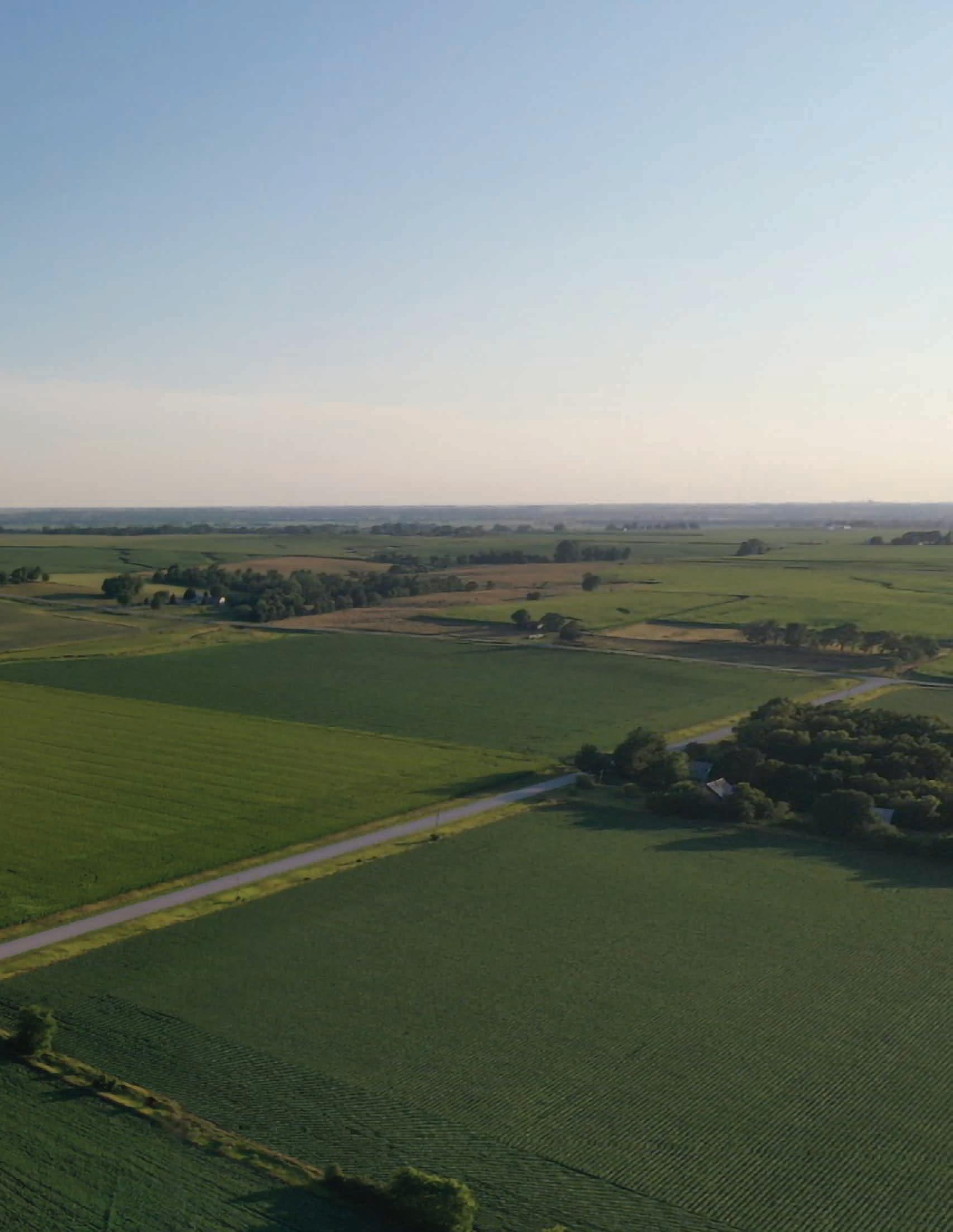LAND SOURCE 2025 RESOURCE















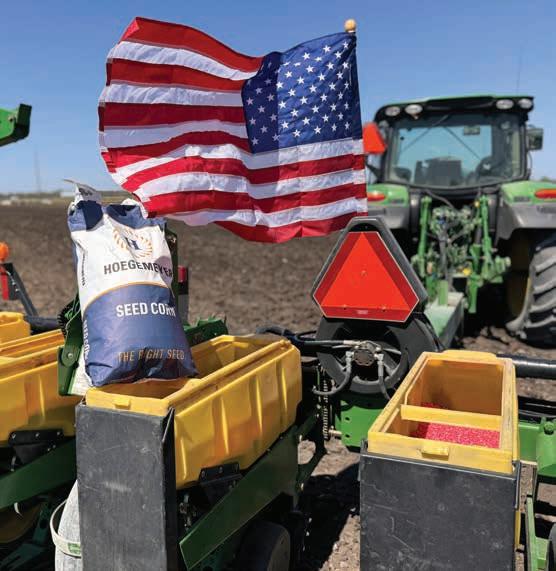





If you've recently inherited farmland, you've likely found yourself navigating unfamiliar territory. Among the many questions you may be asking is one that seems simple yet carries significant weight: "Is now the right time to sell?"
The farmland market has experienced a remarkable journey since 2020. Land values saw substantial appreciation during the post-pandemic period, with many regions experiencing double-digit percentage increases. This bull run was fueled by historically low interest rates, strong commodity prices, and limited inventory.
Iowa State University's renowned annual Land Value Survey documented this dramatic rise, reporting that average Iowa farmland values increased by nearly 39% from 2020 to 2023, reaching an all-time high state average of $11,411 per acre. Their economists noted this represented the second-highest three-year gain in their survey's history.
However, recent data from trusted sources including Farm Credit, the Realtor Land Institute (RLI), Iowa State University, and the Federal Reserve indicate a cooling trend. Iowa State's latest quarterly analysis shows a modest decline of approximately 3.5% since late 2023. Similarly, the Federal Reserve Bank of Chicago reported that Midwest agricultural land values decreased by 4% in the fourth quarter of 2024 compared to the previous quarter—the first quarterly decline in several years. The RLI's Land Values Survey aligned with these findings, showing a modest year-over-year decline of 3.2% for high-quality cropland in the Corn Belt region.
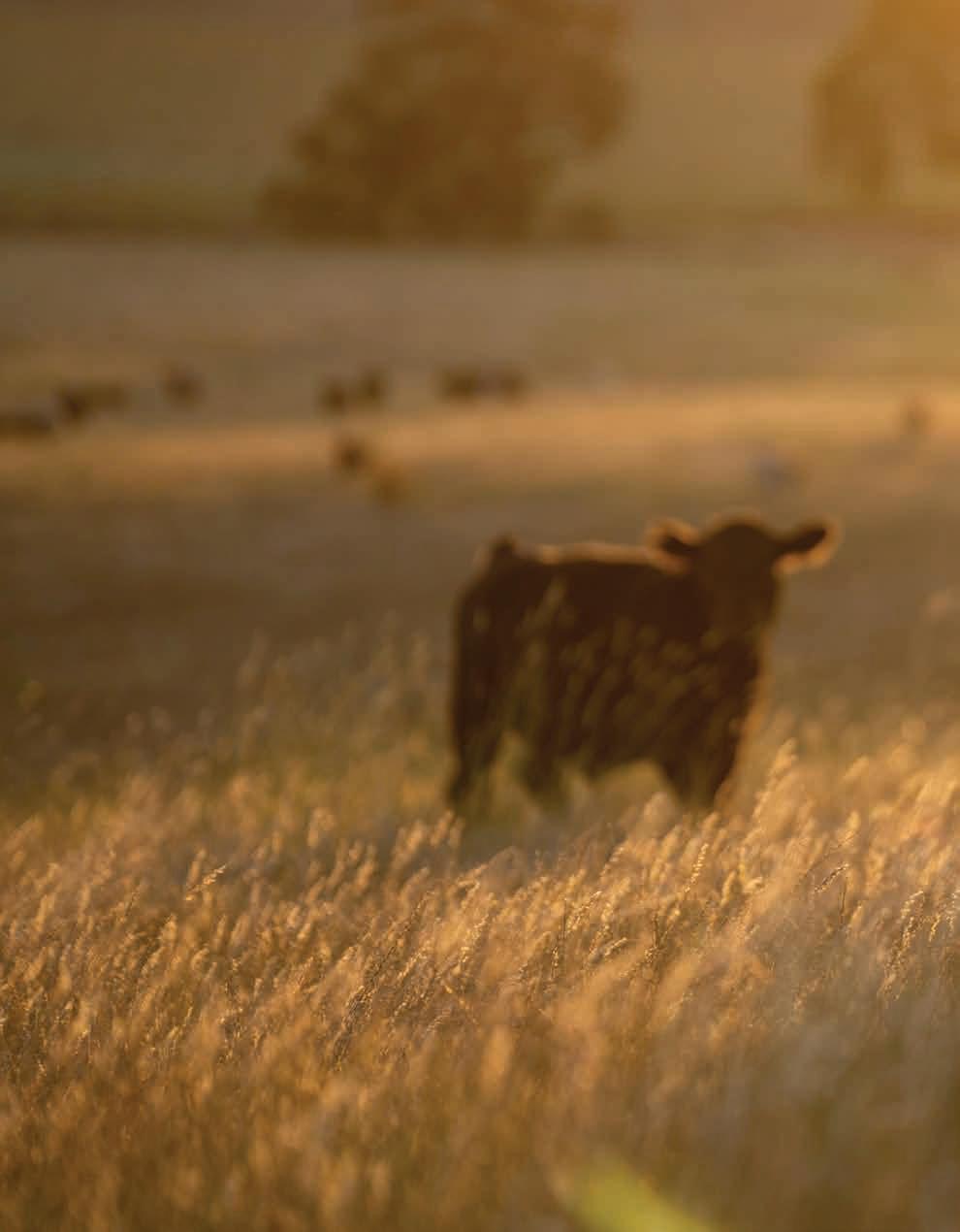
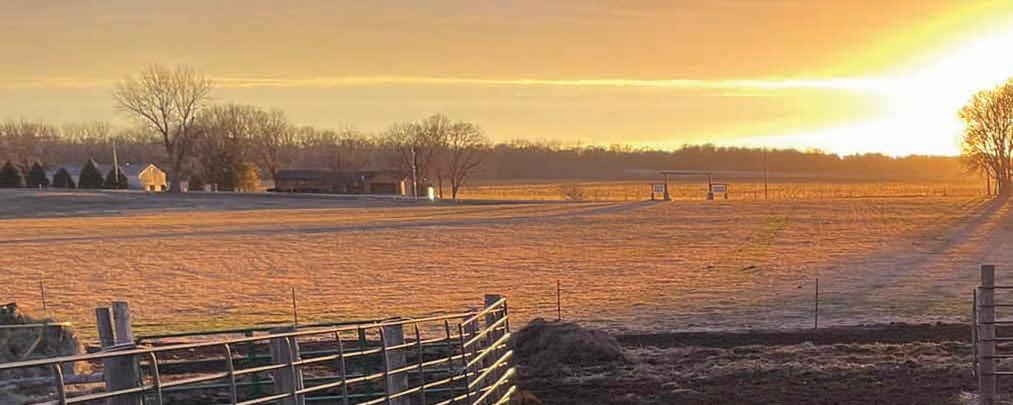
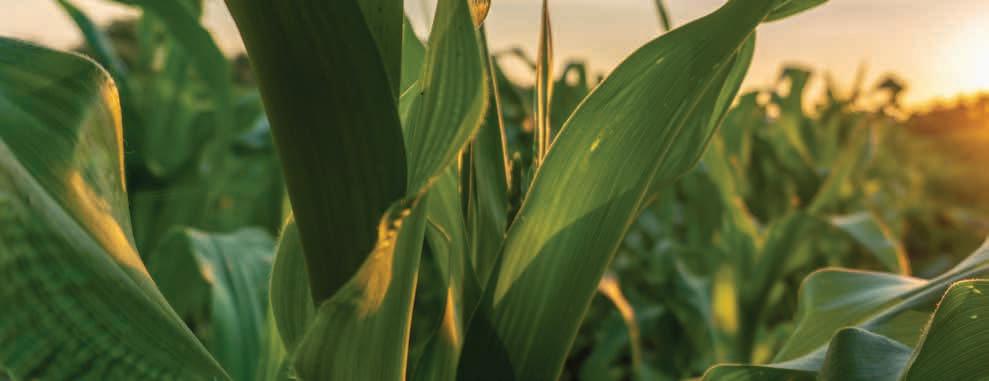
Despite this recent softening, several factors suggest that the present market remains advantageous for sellers:
1. Historical Context Matters: Even with recent declines, today's farmland values remain significantly higher than pre-2020 levels. Owners selling today are still benefiting from the substantial appreciation that occurred over the past five years.
2. Limited Inventory Supports Pricing: Quality farmland remains scarce. For prime properties with good soil quality, adequate drainage, and favorable locations, buyer competition continues to help maintain strong valuations.
3. Long-term Investor Interest: Institutional investors and family offices are increasingly viewing farmland as an attractive alternative asset class, particularly during periods of economic uncertainty. This expanding buyer pool helps sustain demand.
4. Tax Considerations: Current tax laws still offer advantages for inheritors who choose to sell relatively soon after acquisition, potentially maximizing after-tax proceeds compared to waiting years.
While timing the market perfectly is impossible, inheritors considering a sale should consider a few key questions:
• What are your long-term plans and financial needs?
• Do you have the expertise and interest to manage agricultural property?
• How does farmland fit within your broader investment portfolio?
• Have you consulted with agricultural real estate professionals familiar with your specific region?
Dr. Wendong Zhang, associate professor of economics at Iowa State University and a leading expert on farmland markets, emphasizes that despite short-term fluctuations, farmland has historically provided stable long-term returns. However, he also notes that absentee landowner often face unique challenges in property management and staying informed about local market conditions—factors that might influence your selling decision.
The decision to sell inherited farmland is deeply personal and depends on your unique circumstances. However, for many inheritors without strong ties to farming, the current market—despite recent cooling— still represents a historically favorable selling environment.
Whether you choose to sell or hold, working with experienced land professionals can help ensure you make the most informed decision for your situation in today's evolving farmland market.


Each of the items below can be a helpful piece of information for Whitaker Marketing Group’s valuation team, and many of the documents are necessary to close the sale of a farm. However, collecting all of the items below is not necessary to begin the process.
In order to get started, some basic information is necessary. This can include things like:
• Number of Total Acres
• Number of Tillable Acres
• State
• County
• Nearest Town or City
• Section, Township, Range (address)
• Access (is the farm on a highway, or is it diff icult to access)
• Ownership History
• Ownership Structure (is it in an LLC, do you own it alone, or are there multiple owners)
• Rent Information (how does the current farmer rent the farm and for how much)
• Rent History
• Current & Historical Crops Grown
Maps that have notes printed or written on them are always useful. For printed copies, simply scan or take pictures with your phone and email them to us. Additional mapping information like parcel number(s), section, township, and range or FSA field and tract information may also be helpful if available.
This document may be picked up at your local Farm Service Agency office; it shows historical information about cropland amounts, acres enrolled in government programs, and yields for your farm.
FS-578
This document, also available at your local Farm Service Agency office, shows planting records on your farm for an individual year. Sharing the last several years’ planting records is useful for understanding what crops have been grown on the farm.
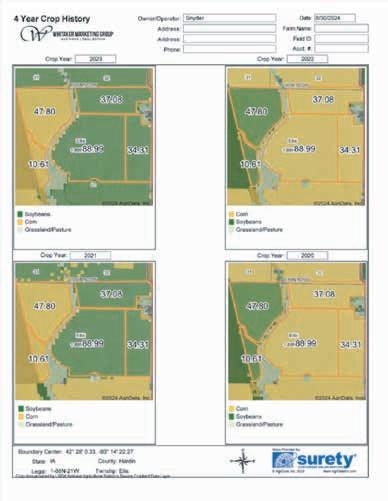

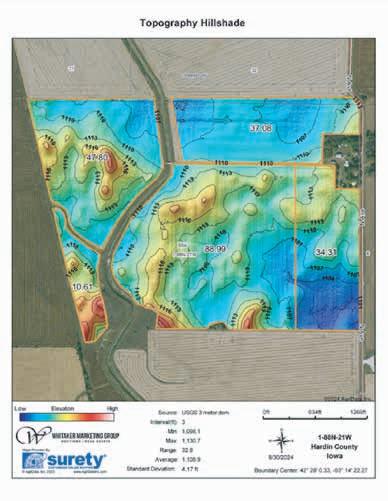

Any further verification of yields possible on a given farm. This can come from delivery tickets at the grain elevator, yield maps, rent checks, or any other summary data. This document helps verify the Actual Production History (APH) for a farm and can be obtained from your crop insurance agent.
Any soil sample maps or texture typing that has been done on a farm is helpful to understand the fertility, water holding capacity, and drainage are on a given field.
How many wells are on the farm? What is the output and depth of each well, and how are they powered? In addition to wells, be sure to include whether the farm has surface water irrigation, what type(s) of irrigation systems are on the farm, and any water rights that are associated with the property.
Please provide any available information if your farm has had land leveling work performed, has drainage tile or any additional water management considerations.
Are any acres signed up in the Conservation Reserve Program (CRP), Wetlands Reserve Program (WRP) or any other government program? If maintaining certain standards on a portion of the property are required by any government programs, please provide descriptions or documentation of each program as available.
Many people don’t know where their abstract is kept. When selling farmland, we will need to have the abstract updated. The selling attorney will give clear title by reviewing the abstract for any encumbrances or encroachments.
When selling your farmland it is important to know what your tax basis is. (This is the price or the value that you the seller inherited or purchased the land for.) This is important when it comes to making the decision to sell. Sellers will need to know what their taxable income will be to make an educated decision on selling price.
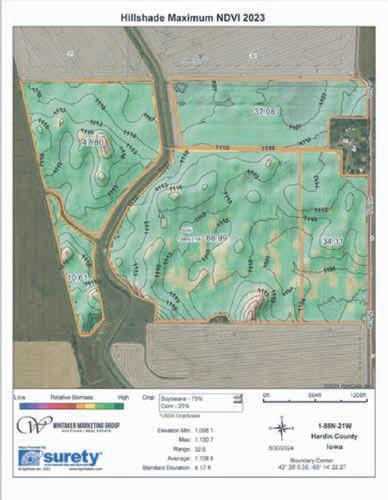


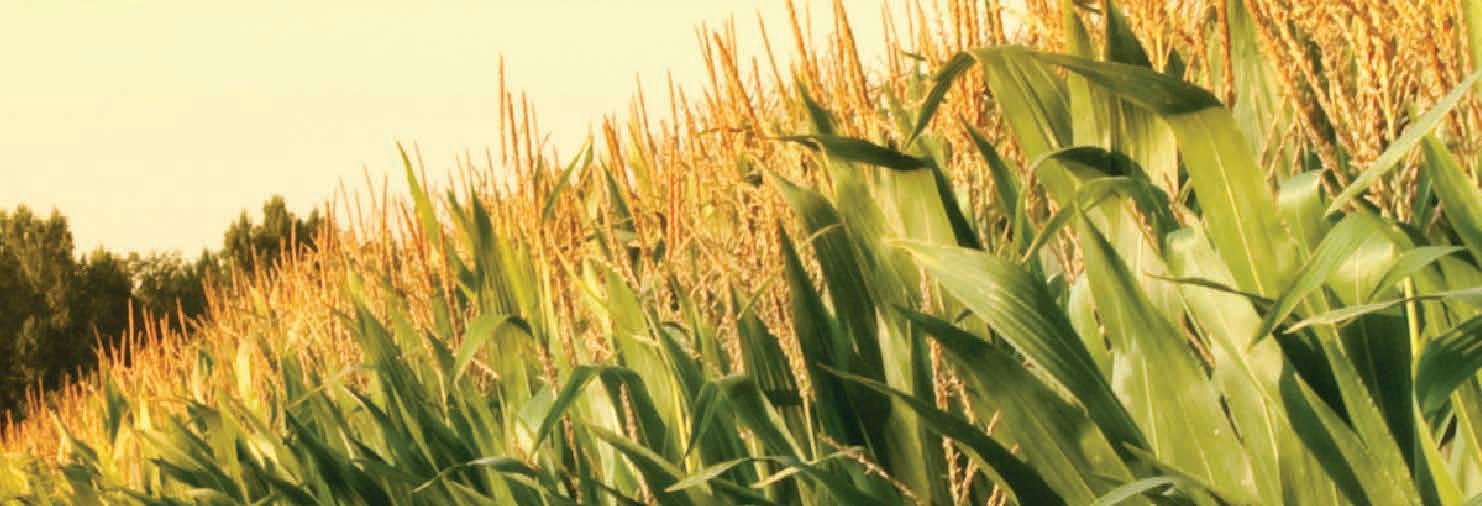
Did you know that Internal Revenue Code
Section 1031 allows you to defer capital gains taxes on the sale of property held for investment or productive use in a trade or business?
To take advantage of the 1031 Tax Free Exchange, you need an independent third-party qualified intermediary. You may select your intermediary from among several options, as long as you don’t choose: yourself, a relative, your agent or your attorney, accountant or real estate broker. We suggest selecting your intermediary based on security, service, experience and price.

What Kind of Property Qualifies for a 1031 Exchange?
Real Property: Almost all kinds of real estate are classified as like-kind to each other. As long as a piece of real property is used for investment or in a business, it will qualify for 1031 treatment. Rental properties, farms, ranches, are examples of real properties that can be exchanged for one another and properties leased for 30 years or more.
Why Choose a 1031 Exchange?
The principal advantage of a 1031 exchange is the ability to use the entire equity of your property to acquire replacement property. The tax consequences of selling property are taken out of the equation and you are free to move equity into more lucrative or appropriate investments.
Specific Reasons for Using 1031 Include: Consolidation or Diversification: You might want to decrease the number of properties you hold by exchanging out of multiple relinquished properties into fewer or a single replacement property. This action could reduce managerial and maintenance burdens. Alternatively, you might exchange out of one high-value property into multiple properties to limit investment exposure, diversify holdings or increase cash flow.
Relocation of Investment: If you relocate from one part of the country to another, you can use 1031 to move real property investments to your new location and avoid payment of capital gains tax.
Stepped-up Basis for Heirs: If you have used 1031 to defer taxable gain, your heirs will acquire the property on a stepped-up basis. Your heirs’ basis equals the fair market value (FMV) of the property at the time of your death and your heirs will pay no tax to the extent the sale price does not exceed the value declared in the estate.
What are the 1031 Timeframes?
Forty-Five Day Identification Rule: You have 45 days from the closing of the relinquished property(ies) to identify your potential replacement property(ies). You can identify any property or properties, subject to the Rules of Identification. You must have the identification documentation to your qualified intermediary on or before the 45th day. You do not have to have the identified property(ies) under contract to identify them.
Exchange Period Rule: You have 180 days from the closing of your relinquished property(ies) to close on the purchase of your replacement property(ies).
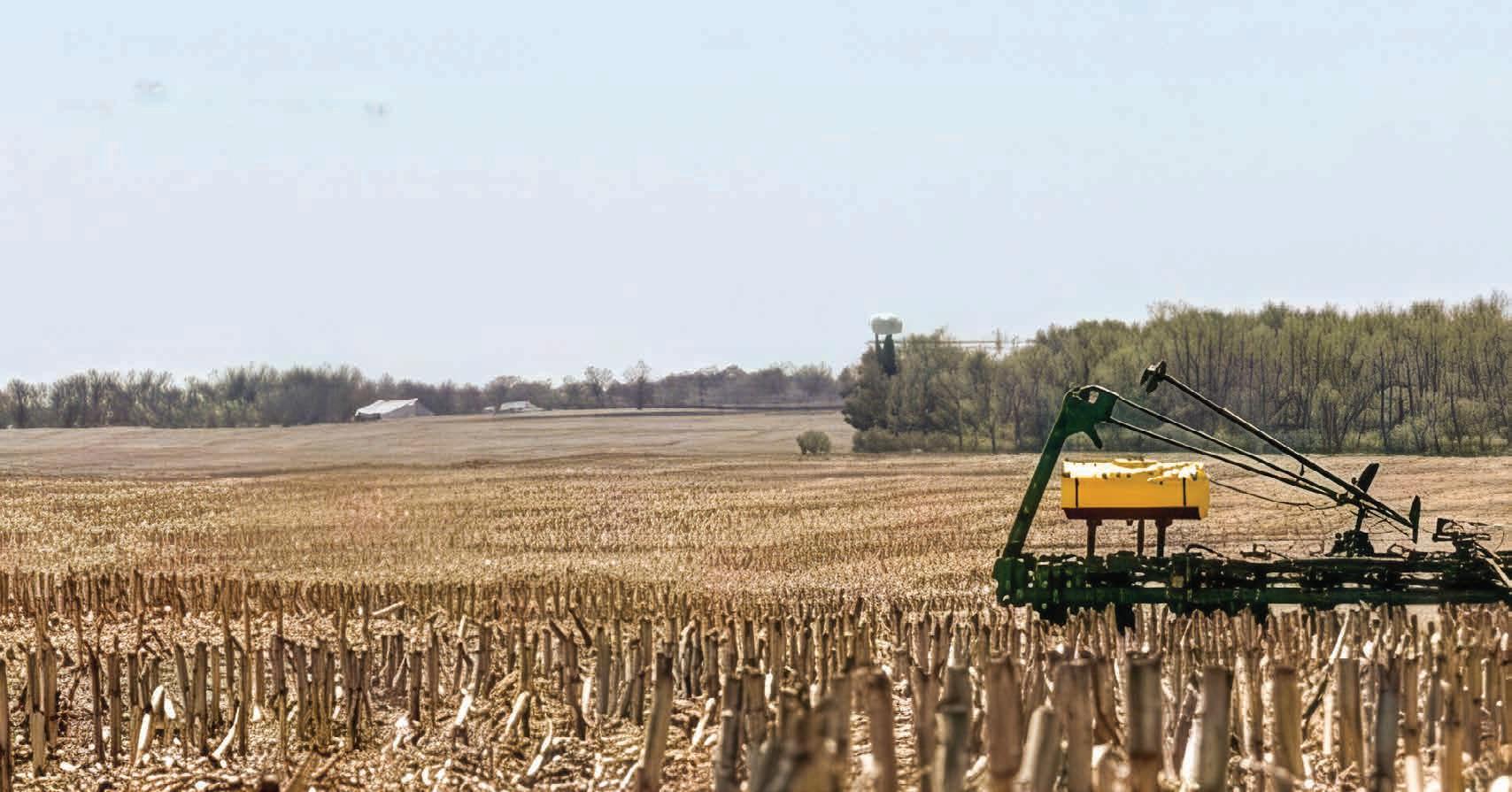

What are the Rules of Identification?
The Three Property Rule: The Exchanger may identify up to three properties without regard to their value.
The 200% Rule: The Exchanger may identify more than three properties, provided their combined fair market value does not exceed 200% of the value of the property sold.
The 95% Rule: The Exchanger may identify any number of properties, without regard to their value, provided the Exchanger acquires 95 percent of the fair market value of those properties.
Other Points to Remember:
• To avoid all taxable gain you must buy a property of equal or greater value than the property. If you purchase a property of lesser value, you will be taxed on the difference.
• You must also use all the cash proceeds from the sale on your purchase to completely defer the applicable capital gains tax. If you do not use all your proceeds on the purchase, you will be taxed on the difference.
• You must place an equal amount of debt on the replacement property as was in place on the relinquished property.
• The above information should be considered general guidelines. It is very important that you work with a knowledgeable attorney and/or tax accountant and real estate professional when considering the sale of real estate and/or a 1031 Exchange.
Why Use Whitaker Marketing Group to Sell Your Farmland?
• Champion Auctioneer
• One-On-One Service
• Honesty
• Utilizing Newest Technologies
• Professional Staff
• Attention to Detail
• Integrity
• Passion
• Marketing
• Drone Video
We understand that your farmland holds not only financial but also personal value. Because we recognize the importance of your relationship with your land, we are also in a unique position to offer the objective guidance you need to make the best decisions for you and your family. Our #1 job is to work for you. It is our fiduciary responsibility to make you the most money we can. We act as your agent, and are continually educating our staff to be the most knowledgeable in selling your farm. We customize each auction to you.

Using the services of a qualified intermediary, you first sell relinquished property and subsequently acquire replacement property. Subject to certain rules, you have up to 180 days from the transfer of the relinquished property to acquire replacement property.
Using the services of a qualified intermediary and an Exchange Accommodation Titleholder (EAT), you acquire replacement property before disposing of relinquished property. The EAT must take title to the replacement property until the relinquished property is sold. You

45 day period to identify replacement property(ies).
benefit from a reverse exchange when you must purchase the replacement property before selling the relinquished property. The transaction must be completed within 180 days.
Use relinquished property proceeds on deposit with a qualified intermediary to construct improvements on replacement property by structuring the transaction as an improvement exchange. Improvement exchanges are similar to reverse exchanges in that an EAT must take actual title to the replacement property while it is under construction. Again, the transaction must be completed within 180 days.
Strawman or Build-to-Suit
At times, improvement exchanges cannot be completed within 180 days. For such occasions, a 1031 exchange can be structured outside the safe-harbor provisions of 1031 and still qualify for 1031 treatment. A third party must take actual title to the property and have a beneficial and significant interest in the transaction.
Exchanger must close on replacement investment property(ies) within 180 days of the closing date of the property that was sold.

Have you bought agricultural land within the last 15 years?
If so, you may be sitting on an untapped and substantial Legacy Nutrient Deduction™ that has averaged $1,700 per acre for our clients.
The IRS allows owners of agricultural land – cropland, ranchland, & timberland - to deduct the residual fertility value of nutrients in their soils at the time of acquisition. To benefit from these deductions, owners need to have valid, third-party assessments of their nutrient levels.
We work with companies to provide scientific data and data-driven testing, analytics, and reporting methodology to help owners of agricultural land take advantage of these nutrient deductions. The company operates in the lower 48 states and has generated tax deductions for thousands of clients for CPAs, Banks, and Brokers.
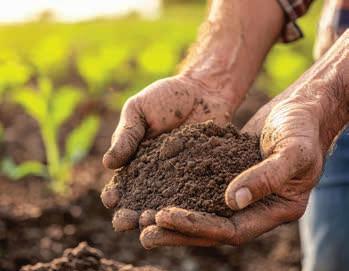


WORLD - CLASS TESTING CUSTOMIZED ANALYSIS TRUSTED REPORTING
We are the soil testing experts.
We deliver the data and analysis your CPA needs.
$1,700 AVERAGE DEDUCTION PER ACRE
Qualify for Section 180. Get the tax deduction you deserve.
Claiming the Section 180 deduction requires a mix of technical expertise and accurate record-keeping. Here’s how to approach it:
Soil Testing & Evaluation
• Start by consulting with an agronomist or soil scientist who can analyze your land’s fertility. Soil samples are tested to quantify the nutrients and amendments already present, such as lime, gypsum or compost. These experts help establish a residual fertilizer value that forms the basis of your deduction.
• If the soil fertility stems from past practices like fertilizer applications, lime treatments or crop rotations, ensure you have records of these activities. Proper documentation is necessary for compliance and may enhance the deduction’s value.
• Work with a CPA who specializes in agriculture. They will guide you in calculating the deduction based on the soil evaluation and ensure its accurately reported on your tax return. They’ll also help you navigate IRS guidelines and stay informed about any changes to the rules.
• The IRS occasionally updates regulations related to Section 180. Keeping up with these changes ensures you’re maximizing the deduction while staying compliant. A qualified agribusiness accountant can help you adapt as new information becomes available.
For many farmers, the answer is yes. The Section 180 deduction can offset a substantial amount of income, particularly if the land’s residual fertilizer value is high. However, the process requires precision. Without proper soil analysis and documentation, you could miss out on the full benefits—or worse, face challenges from the IRS.
Contact us to receive a FREE estimate on your legacy nutrient deductions.
• Stable, Predictable Returns: Average annual cash returns of 2.5-3% (similar to dividend stocks)
• Consistent Appreciation: Land values historically increase 3-7% annually
• “No Tenants, Toil, or Turmoil”: Unlike residential real estate, farm operators handle all production work
• Inflation Protection: Farmland values and income historically rise with inflation
• Tangible Asset: Farmland values and income historically rise with inflation
Let’s build your Iowa farmland portfolio.
Financial Metrics
• Cash rental yield: 2.5-3% typically
• Total ROI: 6-10% including appreciation
• Price per CSR point vs. county average
• Price per acre relative to recent comparable sales)
Critical Factors
• CSR rating (higher = better)
• Total ROI: 6-10% including appreciation
• Price per CSR point vs. county average
• Price per acre relative to recent comparable sales)
CSR Rating System: Iowa farmland is rated on a 0.5-100 scale (Corn Suitability Rating)
• Higher CSR = better productivity, higher purchase price, and higher rental rates
• Premium farms (CSR 80+) command top prices and rents
Investment Types:
• Production Agriculture: Maximum income from row crops (corn, soybeans)
• Recreational Land: Hunting, conservation, lifestyle benefits with lower financial returns
Tile Drainage Benefits:
• Properly tiled fields yield significantly better harvests
• Adding tile costs approximately $1,200/acre
• 100% tax-deductible under Section 179 tax deduction
Nutrient Depreciation: Average of $1,700/acre in nutrient depreciation potential using Section 180 tax deduction
• Section 179 Deduction: 100% deduction for drainage tile improvements ($1,200/acre average)

• Section 180 Deduction: Nutrient depreciation benefits ($1,700/acre average)
• 1031 Exchanges: Roll capital gains into new farmland purchases tax-deferred
• Estate Planning Benefits: Stepped-up basis for heirs and potential special use valuation
Think of farmland as a “dividend stock” with annual cash rent plus appreciation
Typical returns include:
• 2.5-3% annual cash return (similar to dividend yield)
• 3-7% historical annual appreciation
• 6-10% total annual return
Investment timeframe should be 10+ years for optimal results. Consider working with professional farm managers to optimize returns.
1. CoProven Long-Term Returns
Iowa farmland has consistently delivered stable, long-term appreciation and competitive annual returns compared to other asset classes.
2. Reliable Income Stream
Through cash rent or crop-share agreements, farmland generates passive income—often with multi-year lease commitments.
3. Limited Supply, High Demand
With limited land turnover and increasing demand for food and fuel, high-quality farmland is becoming harder to find—and more valuable.
4. Best-in-Class Soil Productivity
Iowa’s fertile soils (like Clarion and Nicollet series) and high CSR2 ratings drive strong yields and tenant demand.
5. Inflation Hedge
As inflation rises, both land values and rental rates tend to climb—making farmland an effective inflation-resistant asset.
6. Tax-Advantaged Investment
Farmland investors benefit from capital gains treatment, 1031 exchanges, and potential estate tax planning strategies.
7. Diverse Use Potential
Farmland offers optionality: farming, CRP enrollment, recreational use, solar leases, and future development potential.
8. Strong Agricultural Economy
Iowa is a national leader in corn, soybeans, pork, and ethanol—providing a stable backbone for farmland investment returns.
9. Low Volatility
Compared to stocks or commercial real estate, farmland shows lower price swings and is less impacted by daily market shocks.
10. Generational Wealth Builder
Farmland is often passed down through families. It builds equity, provides annual income, and preserves wealth across generations.

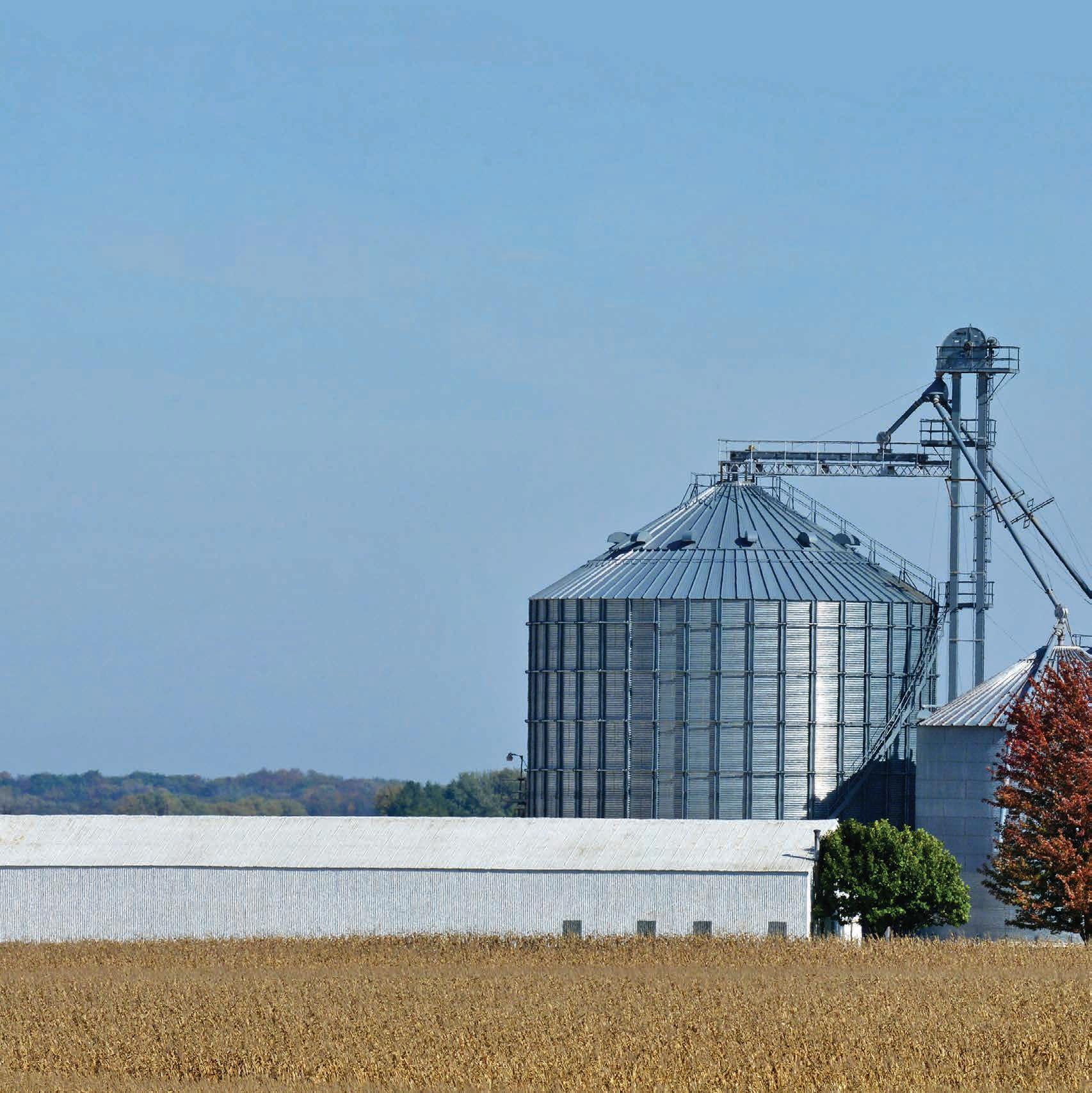
Farm Credit Services of America:
• Co-op Membership Benefits: 1% annual dividend to borrowers
*Disclaimer: Returns may vary based on market conditions
• Loan Types: Real estate, operating lines, equipment financing
• Terms: Fixed and adjustable rates; 15-30 year amortization
• Expertise: Deep understanding of Iowa agricultural markets
• Additional Services: Crop insurance, appraisal services
• Patronage Program: Cash-back dividends based on business volume
• Website: www.fcsamerica.com
Rabobank/Rabo Agrifinance:
• Global Perspective: International agricultural banking expertise
• Loan Types: Land purchase, refinancing, operating capital
• Farm Management: Advisory services for operational efficiency
• Terms: Competitive rates with flexible structures
• Market Intelligence: Access to agricultural commodity research
• Website: www.raboag.com
Farmer Mac (Federal Agricultural Mortgage Corporation):
• Government-Sponsored Enterprise: Created by Congress for Farm Credit
• Specialty: Secondary market for agricultural loans
• Advantages: Competitive long-term fixed rates
• Loan Size: $75,000 minimum
• Terms: 3-30 year fixed and adjustable rate products
• Website: www.farmermac.com
• Institutional Strength: largest agricultural lenders
• Focus: Commercial-scale operations and larger land purchases
• Loan Types: Long-term fixed rate agricultural mortgages
• Terms: 5-30 year fixed rates; minimum loan typically $1M+
• Website: www.metlife.com/ agricultural-investments
• Alternative Financing: Options for complex or unique situations
• Flexibility: Creative solutions for special circumstances
• Loan Types: Traditional, alternative, and bridge financing
Expertise: Restructuring and


USDA Farm Service Agency (FSA):
• Beginning Farmer Programs: Special rates for new entrants to agriculture
• Direct Farm Ownership Loans: Up to $600,000
• Guaranteed Farm Loans: Up to $2,251,000 (2025 limit)
• Down Payment Program: Only 5% down for qualified beginning farmers
• Terms: Lower interest rates than conventional loans
• Website: www.fsa.usda.gov
Iowa Finance Authority
Beginning Farmer Loan Program:
• Tax-Exempt Bond Financing: Below-market interest rates
• Eligibility: First-time farmland buyers with net worth under $820,000
• Loan Types: Land, improvements, breeding livestock
• Maximum: Up to $667,500 per borrower
• Website: www.iowafinance.com/beginningfarming-programs
Local & Regional Iowa Banks
• Community Knowledge: Understanding of local land markets
• Relationship Banking: Personalized service and local decision-making
• Typical Terms: 30-40% down payment; 15-30 year amortization
• Advantages: Potential for faster loan processing and flexibility
• Considerations: May have lending limits for larger purchases
National Banks With Agricultural Divisions
• Examples: Wells Fargo, Bank of America, U.S. Bank
• Resources: Extensive lending capacity for large purchases
• Additional Services: Wealth management, succession planning
• Terms: Conventional loan structures; typically higher down payments
• Typical Requirements: 50-70% loan-to-value (30-50% down payment)
• Prime Farmland: May qualify for lower down payment requirements
• CSR Ratings: Higher CSR farms may receive preferential terms
• Fixed Rate: Protection from rising rates; typically 5-30 year terms
• Adjustable Rate: Lower initial rates; repricing at 1-10 year intervals
• Interest-Only Options: Available from some lenders for qualified borrowers
Tax Considerations:
• Mortgage Interest Deduction: Tax-deductible interest expenses
• Section 179: Deductions for drainage tile improvements ($1,200/acre average)
• Section 180: Nutrient depreciation benefits ($1,700/acre average)
• 1031 Exchanges: Tax-deferred property exchange for farmland investors
1. Determine Your Budget: Establish clear financial boundaries

2. Check Your Credit: Review and address any credit issues
3. Gather Financial Documents: Tax returns, financial statements, asset listings
4. Research Lender Options: Compare rates, terms, and agricultural expertise
5. Request Term Sheets: Compare offers from multiple lenders
6. Consider Loan Structure: Evaluate fixed vs. variable options
7. Review Prepayment Terms: Understand any penalties for early payoff
8. Analyze Closing Costs: Factor in all fees and expenses
Wondering whether to list or auction your farm? It’s a big decision that can really affect your bottom line. As someone who works with both traditional sales and auctions every day, I want to walk you through your options so you can make the best choice for your particular situation and goals.
When selling farmland, you generally have several primary options:
• Traditional Auction
• Traditional Listing
• Online Auction
• Sealed Bid Auction
• Off-Market Listing
Each approach has its own strengths and attracts different buyers depending on your property type, location, ownership history, time constraints, and reasons for selling.
At Whitaker Marketing Group, we will help you find the best selling option for your unique property.
Traditional listing remains the most common approach to selling land nationwide. It sets an asking price and opens the door for negotiations with potential buyers.
Wider Exposure: Your property stays visible longer, reaching buyers using 1031 exchanges or those who need financing
Flexible Timeline: You can take your time reviewing offers and negotiating better terms
More Control: You maintain greater influence over sale conditions with space to consider each offer carefully
Extended Timeframe: May take longer to complete the sale, particularly in today’s market with a smaller buyer pool
Market Fluctuations: Property values could change during the listing period, potentially resulting in a lower final price
Properties that have recently been on the market, recreational land, farms with improvements or restrictions, development potential properties, or parcels that aren’t easily subdivided
Off-market sales happen without publicly listing your property, offering a more discreet selling approach.
Discretion: Maximum confidentiality throughout the transaction process
Strategic Buyers: Direct negotiations with carefully selected, qualified prospects
Leaseback Options: Perfect for sellers wanting to continue farming the land after sale
Property Preparation: We collaborate closely to enhance your property’s value before selling
Reduced Visibility: Your property might not achieve its full market potential due to limited exposure
Fewer Prospects: A smaller pool of interested buyers might extend your selling timeline
Price Uncertainty: More difficult to establish accurate market value


Auctions have gained significant popularity for land sales, particularly for tillable farmland throughout the Midwest. The competitive environment helps establish genuine market value.
(In-Person) Advantages:
Clear Timeline: Creates faster sales with specific deadlines and schedules
Buyer Competition: Fosters an environment where multiple bidders can drive prices higher Fair Process: Provides all potential buyers identical opportunities to participate under the same conditions
Challenges:
Less Predictability: Final sale price remains unknown until auction day
Potential Downside: Risk of selling below expectations if market positioning isn’t optimal
Suited For:
Premium farmland, properties attracting multiple interested parties, estate and trust sales
Offers comparable benefits to traditional auctions but takes place in a digital format
Suited For:
Smaller parcels, recreational properties, land with development potential
Off-market sales happen without publicly listing your property, offering a more discreet selling approach.
Privacy Protection: Keeps all offer amounts confidential between parties
Structured Timeline: Motivates buyers to submit their best offers from the start
Customizable Terms: Accommodates special conditions like financing requirements or extended closing periods
Challenges:
Reduced Competition: May not generate the same energy and price escalation as public auctions
Limited Back-and-Forth: Fewer opportunities to negotiate after bids are submitted
Suited For:
Specialty properties, farms with improvements, larger tracts of land, and development land.
There’s no universal approach to selling farmland. Every property and seller has unique circumstances. As your land professional, I’m dedicated to guiding you through this significant decision, drawing on my extensive experience and resources to identify the solution that best matches your specific needs and objectives.


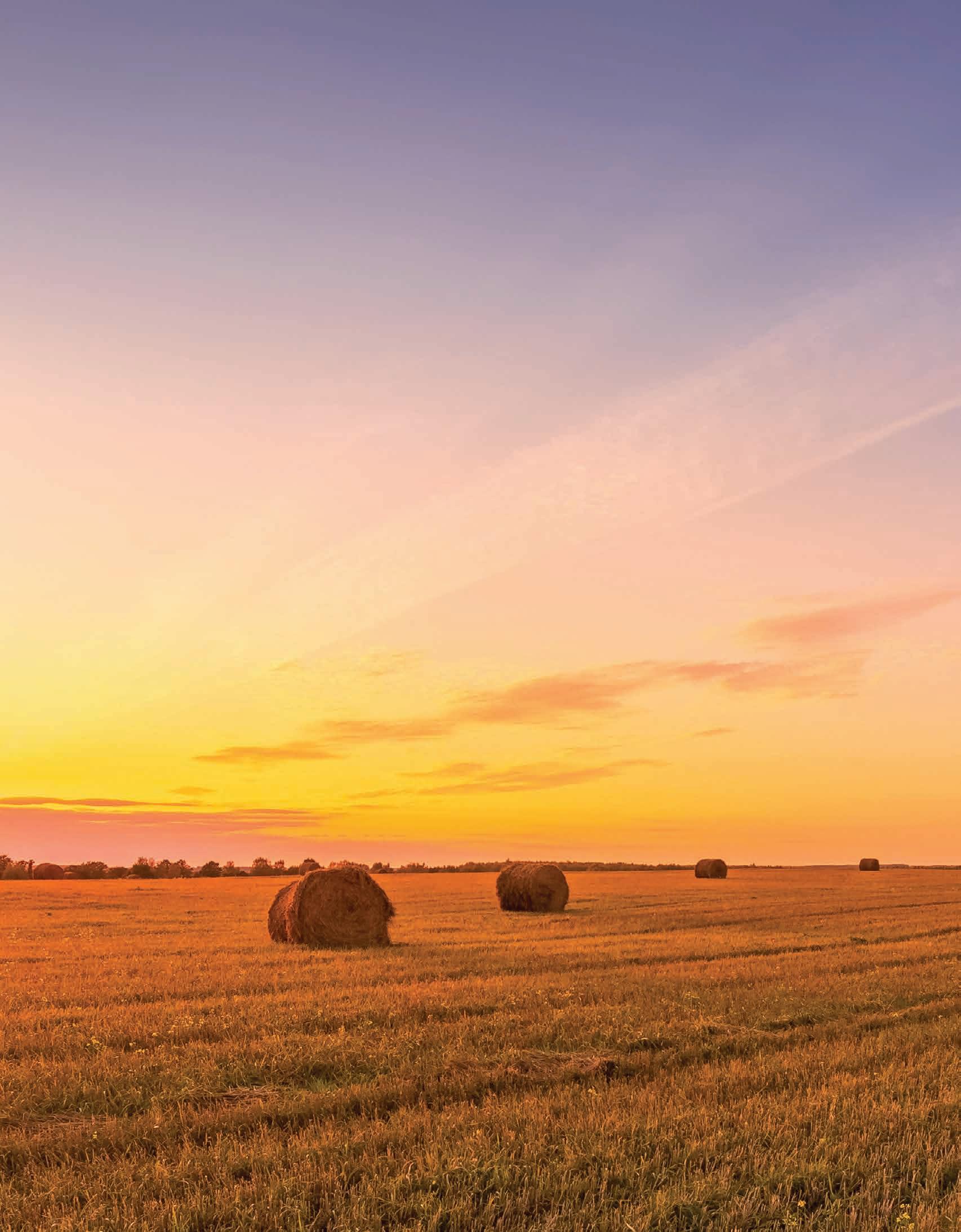


To qualify for FSA beginning farmer programs, you must:
• Have operated a farm for less than 10 years
• Substantially participate in the operation
• Be unable to obtain sufficient credit elsewhere
• Have an acceptable credit history
• Be a U.S. citizen or qualified alien
• Ownership Limitation: You cannot own a farm larger than 30% of the average sized farm in your county, at the time of application.
Note: Program details are subject to change.Contact your local FSA office or the Iowa Finance Authority for the most current information and requirements.
Let’s get started on your farming journey.
• Maximum Amount: Up to $600,000 (limits may adjust annually)
• Purpose: Purchase farmland, construct buildings, conservation projects
• Terms: Up to 40 years
• Interest Rates: Below commercial rates (variable, based on government borrowing costs)
• Special Feature: Dedicated funding specifically reserved for beginning farmers
• Note: For direct farm ownership loans, you must have operated a farm for at least 3 years
• Value: Max $600,000
• Down Payment: Only 5% required from you
• Remaining Portion: 50% from a commercial lender
• Interest Rate: 1.5% fixed on FSA portion (subject to change)
• Term: 20 years
• Advantage: Dramatically reduces initial capital required to purchase farmland
• Maximum Amount: $400,000
• Purpose: Livestock, equipment, inputs, annual operating expenses
• Terms: 1-7 years depending on purpose
• Special Feature: Simplified application for smaller farmers
• Maximum Amount: $50,000
• Purpose: Smaller operations, specialty crops, beginning expenses
• Advantage: Streamlined application process
• Terms: Up to 25 years for farm ownership; 7 years for operating expenses

• Maximum Amount: $2,251,000 (as of 2025)
• Structure: Commercial lender provides loan with FSA guarantee
• Guarantee: FSA guarantees up to 95% of loan amount
• Terms: Negotiated with lender (40 years max for real estate)
• Advantage: More accessible commercial financing
Land Contract Guarantees:
• Purpose: Facilitates private land sales between retiring and beginning farmers
• Maximum Guarantee: $500,000
• Down Payment: 5% minimum
• Benefit: Provides financial guarantees to the seller of the farm

Iowa Beginning Farmer Tax Credit Program:
• Benefit: 5-15% tax credit to landowners who lease to beginning farmers
• Result: More accessible land rental opportunities
• Administrator: Iowa Finance Authority
IADD Loan
Participation Program:
• Benefit: Reduces interest rates by up to 4% on the IADD portion
• Structure: Works alongside your primary agricultural lender
• Advantage Lower overall borrowing costs
• Administrator: Iowa Finance Authority
Iowa Beginning Farmer Loan Program (BFLP):
• Structure: Tax-exempt bond financing for reduced interest rates
• Eligibility: Net worth under $852,000
• Maximum: Up to $575,600 per borrower
• Purpose: Purchase of agricultural land, improvements, breeding livestock
• Administrator: Iowa Finance Authority
Iowa Beginning Farmer Down Payment Program:
• Purpose: Supplemental assistance with farm purchases
• Advantage: Can be combined with federal FSA programs
• Administrator: Iowa Finance Authority
Beginning Farmer and Rancher Development Program:
• Education, training, and mentoring programs
Conservation Reserve Program
Transition Incentives (CRP-TIP):
• Incentives for retiring farmers to transfer land to beginning farmers
Environmental Quality Incentives Program (EQIP)
• Cost-sharing for conservation practices with special funding for beginning farmers
Farm Storage Facility Loans
• Low-interest loans for storage with reduced down payment (5%) for beginning farmers
1. Contact your local FSA office for initial consultation
2. Complete FSA forms and Farm Business Plan
3. Gather financial records (3 years if available)
4. Develop farm operating plan and cash flow projections

• Find Your Local FSA Office: farmers.gov/service-centerlocator (https://www.farmers.gov/working-withus/servicecenter-locator)
• FSA Beginning Farmer Programs: fsa.usda.gov/farmloans (https://www.fsa.usda.gov/programs-andservices/farmloan-programs/beginning-farmers -and-ranchers-loans/index)
• Iowa Finance Authority: iowafinance.com/beginningfarming-programs (https://www.iowafinance.com/beginningfarming-programs/)
• Iowa State University Beginning Farmer Center: extension.iastate.edu/bfc (https://www.extension.iastate.edu/bfc/)
5. Provide verification of income and credit history
6. Identify property (for farm ownership loans)
7. FSA reviews application for eligibility and feasibility
8. Loan decision based on program criteria
9. Closing process begins for approved loans
• Start Early: The application process can take 30-60 days
• Build Experience: Document your agricultural experience carefully
• Financial Records: Maintain detailed financial records and good credit
• Business Plan: Develop a realistic and detailed farm business plan
• Multiple Programs: Consider combining multiple FSA and Iowa programs
• Seek Guidance: Work with experienced FSA staff and agricultural advisors

Whitaker Marketing Group is a full service auction and real estate firm serving the Midwest since 2008. Our primary focus is agricultural real estate. Whitaker Marketing Group also regularly works with non-profit organizations to raise money for fundraising.
Whitaker Marketing Group is headed by David and Ann Whitaker, a husband and wife team, working for the common goal of doing the best job for their clients.
With agriculture in our blood, we are experts in our prospective fields. Whitaker Marketing Group also has team members, throughout the state of Iowa, that are extremely friendly, honest, knowledgeable, hard working, and talented!
Our job is to work with buyers and sellers, to connect them and have a successful exchange of property.
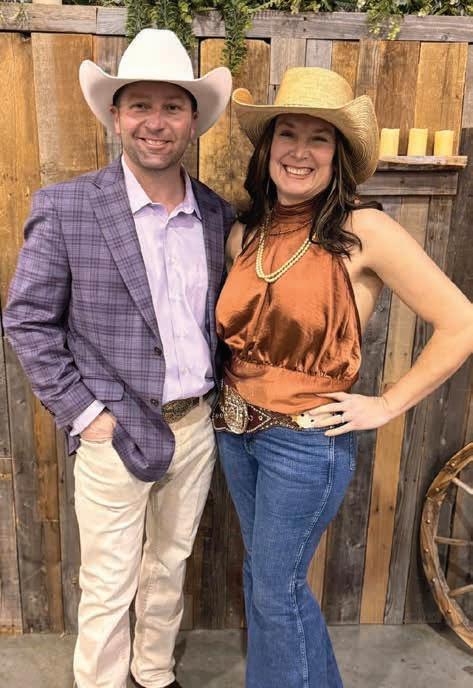

Phone: 515-996-LAND (5263)
Email: info@wmgauction.com
Office: 101 US 69 Huxley, IA 50124
Website: www.WMGauction.com
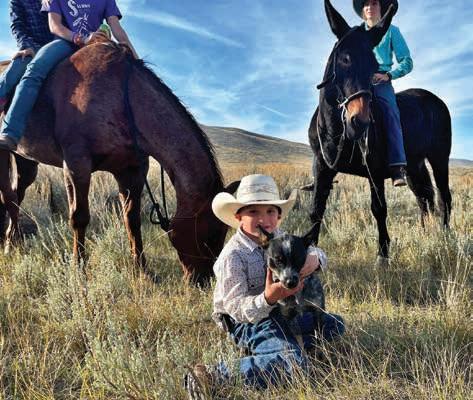
Our obligation is to market your assets to the largest audience,
“ Our commitment is to be your trusted advisor. yielding the most successful outcome.”

David Whitaker Broker | Auctioneer
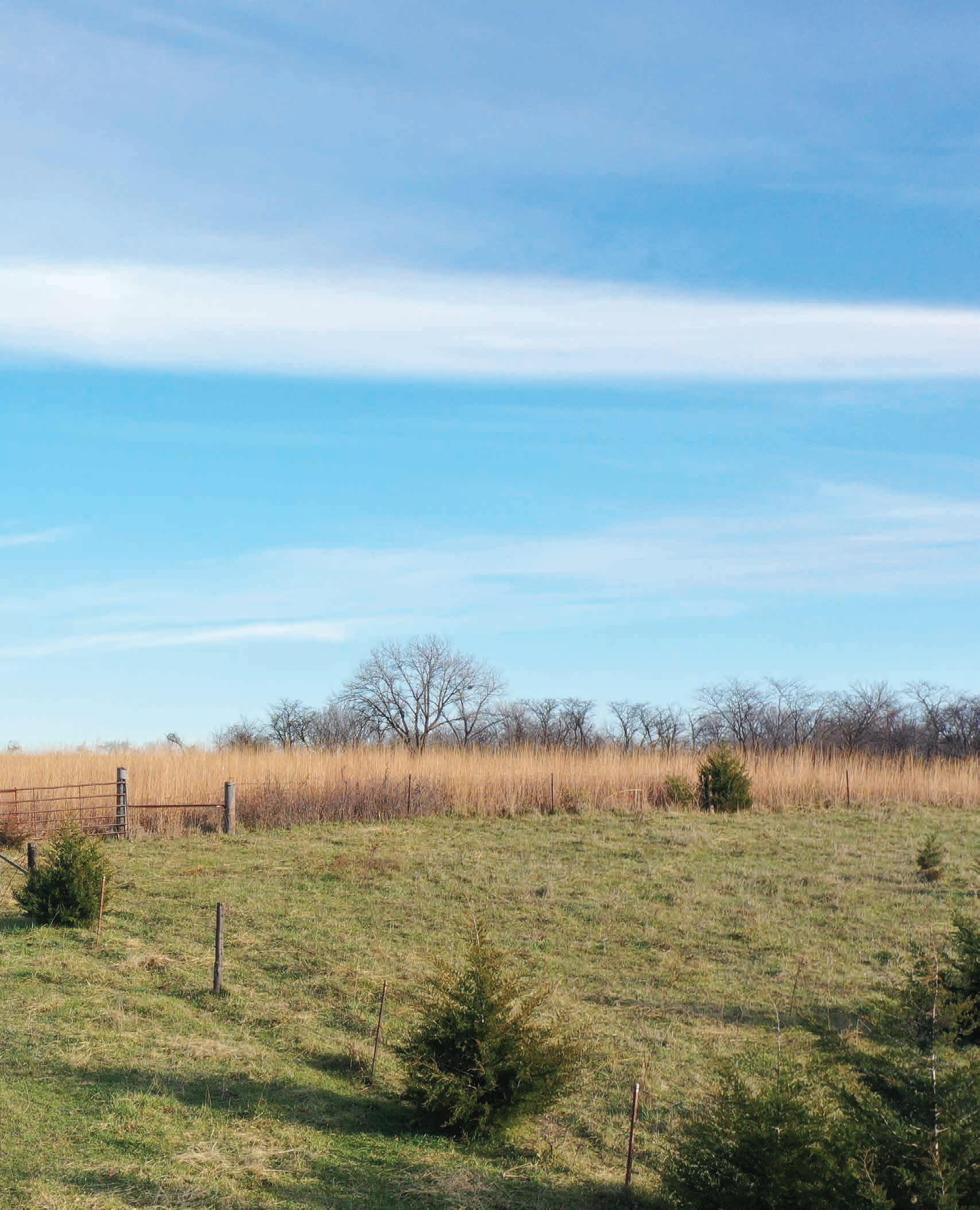
Ann Whitaker Agent | Owner
















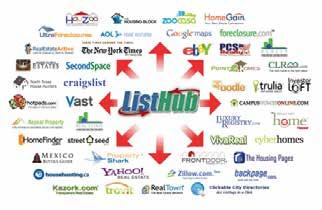

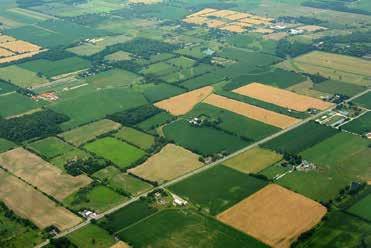




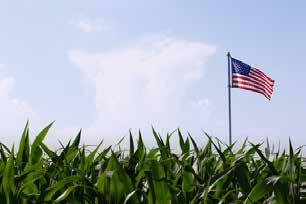
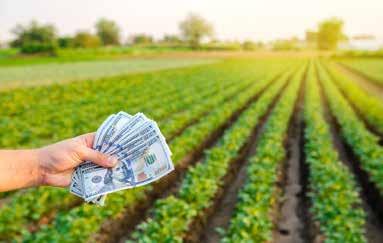








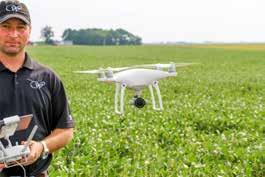











Are you thinking about buying or selling Iowa farmland but unsure where to start? You're in the right place. At Whitaker Marketing Group, we specialize in farmland auctions, land sales, and rural property marketing across Iowa and the Midwest. Whether you're a first-time buyer, a seasoned investor, or a landowner ready to sell, we’re here to help you navigate the process with confidence. We’ve compiled answers to the most frequently asked questions about farmland auctions—from how to get started and what to expect to understanding commission structures and land value trends. Each answer reflects our deep experience managing farmland sales and maximizing landowner returns.

Scan the QR code to view all the videos!



In Iowa, farmland productivity is often measured using the Crop Suitability Rating (CSR) or its updated version, CSR2. This score helps determine the land’s potential for crop production on a scale of 0.5 to 100, with 100 being the most productive.
• Introduced: Iowa State University created CSR in 1971 and updated it to CSR2 in 2011.
• Key Factors: Soil type, topography, waterholding capability, and slope.
• CSR2 Update: Offers improved accuracy by incorporating water-holding capacity.
• Why It Matters: All government agencies, like USDA and FSA, use CSR2 to assess farmland value.
Knowing your farm’s CSR2 score provides valuable insight into its productivity and marketability. Buyers rely on this data to evaluate farmland quality, making it a key tool for pricing and negotiations.
1. CSR2 scores range from 0.5 to 100, with higher scores indicating better productivity.
2. Soil type, water-holding capacity, and topography significantly impact the score.
3. CSR2 is used by government agencies and land professionals for farmland valuation.
For more insights into your land’s potential or help determining your CSR2 score, contact our team today!
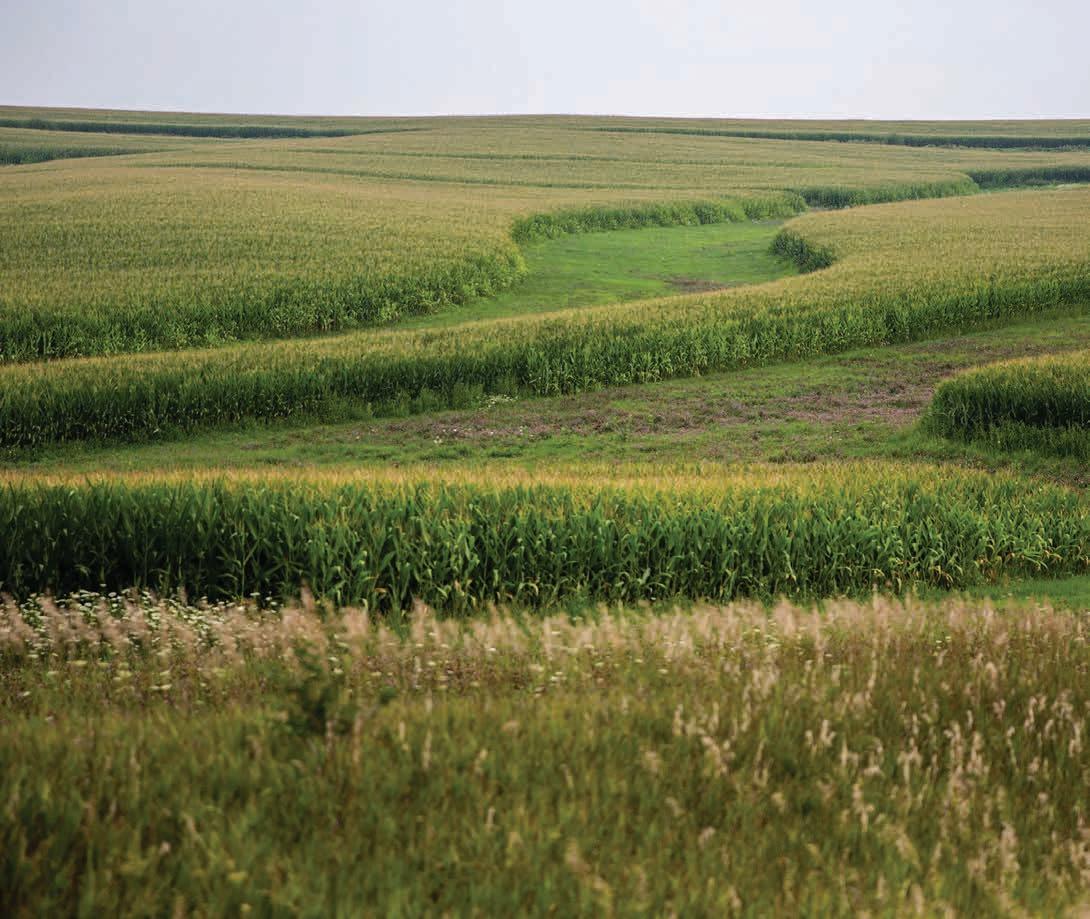

Yes, you can set a reserve when selling your farm. A reserve is your bottom-dollar price—the minimum amount you’re willing to accept for the property. This option allows sellers to ensure their farm doesn’t sell below a certain value.
• Reserve Auction: The property only sells if bidding meets or exceeds your reserve price.
• Absolute Auction: The property sells to the highest bidder regardless of the final price.
• The reserve is typically set in consultation with your broker after a farm valuation or appraisal.
• Many sellers set the reserve 10% below the targeted sale price to encourage bidding while minimizing the risk of underselling.
• Reserves are a safeguard, not a pricesetting tool. They aim to prevent financial loss, not dictate the final sale price.

Key Takeaways
1. Reserves protect your minimum acceptable price during an auction.
2. Absolute auctions lets the buyers know the seller is going to sell.
3. A well-placed reserve balances seller protection with buyer interest to drive competitive bidding.
Want to explore whether a reserve or absolute auction is best for your farm? Contact our team today for tailored advice and expert auction services!

Yes, we offer online bidding through a custom-built platform designed specifically for farmland auctions. This ensures convenience for bidders while maximizing exposure and competition for sellers.
Features of Our Online Bidding Platform
• Custom Design: Built exclusively for farmland auctions, unlike syndicated software that may resell user data.
• User-Friendly Interface: Large buttons and clear visuals make bidding easy, even for first-timers.
• Mobile Compatibility: Bid from anywhere— on your phone, tablet, or PC.
• Live Auctioneer Experience: High-quality audio and video feeds let bidders see and hear the auctioneer in real-time.
Online Bidding opens your property up to a larger pool of buyers, increasing competition and raising the potential for better results. It also accommodates busy or remote bidders, ensuring everyone has a chance to participate no matter where they are.
Key Takeaways
1. Our online platform is secure, userfriendly, and optimized for farmland auctions.
2. Bidders can participate from any device, including mobile phones.
3. Sellers benefit from wider exposure and enhanced buyer convenience.
Ready to leverage cutting-edge technology to sell your farm? Contact our team today for details on our auction services!
Yes, you can sell your farm even if it’s leased. In Iowa, whether a farm is subject to a lease or has an open lease agreement, there are options available to ensure a successful sale.
• Lease Termination Deadline: In Iowa, lease termination notices must be served by September 1. If no notice has been served, the buyer must honor the existing lease for the remainder of the term.
• Open Lease Agreements: If the lease has been terminated, the property will be sold with no lease obligations, which can appeal to buyers seeking immediate use of the land.
• Selling Subject to a Lease: Just like selling a hotel or commercial property, farmland can be sold with a lease in place. Buyers may inherit the lease terms, including cash rent payments.
Determining who receives the cash rent depends on several factors:
1. Timing of the Sale: Cash rent may be prorated based on the date of closing.
2. Buyer/Seller Agreement: This can be negotiated during the sale.
3. Tax Implications: Sellers can choose to collect the rent as ordinary income or apply it as a deduction to reduce capital gains taxes.
Key Takeaways
1. Farms can be sold whether they are leased or have an open lease.
2. Cash rent distribution depends on the timing and terms of the sale.
3. Tax considerations play an important role in deciding how to handle cash rent.
For expert advice and tailored strategies to sell your leased farmland, contact our team today!



Deciding whether to split a farm into multiple tracts depends on factors like geography, buyer demand, and your goals as the seller. This decision is typically addressed during the farmland valuation process.
1. Family Preferences: Some families prefer to keep the farm intact, even if splitting it could yield higher profits.
2. Geographic Advantages: Splitting the farm may attract competitive bidding from neighbors or create more accessible parcels for different buyers.
3. Buyer Accessibility: Smaller tracts are often easier for buyers to purchase, making the farm more appealing to a wider audience.
4. Land Features: Soil type, field shape, and topography all influence whether splitting the farm makes sense.
• Valuation Analysis: A thorough evaluation of the farm will help determine whether splitting it increases its marketability and value.
• Seller Goals: Your expectations, whether financial or sentimental, play a crucial role in the decision.
Key Takeaways
1. Splitting the farm can boost buyer interest, but isn’t always the best financial or personal choice.
2. Factors like geography, tract size, and competitive bidding influence the decision.
3. Your goals as the seller guide the final strategy.
For expert guidance on maximizing the value of your farm, contact our team today!
Selling farmland when your family disagrees can be complex, but it’s possible depending on the circumstances. In Iowa, the key factor is ownership percentage and whether the land can be divided.
Important Considerations
1. Ownership Percentage:
• If you own 25% or less, selling without family agreement is unlikely.
• If you own more than 25%, you may sell your share if the land is geographically dividable
2. Partition Action:
• If the land isn’t easily divided, you can file a partition action in court.
• The court may decide to sell the property, as splitting proceeds is often simpler than dividing farmland.
• The court considers factors like size, shape, value, and farmability to ensure fairness.
3. Family Buyout Option:
• Before filing a legal action, consider discussing your plans with your family.
• They may be willing to purchase your share, avoiding court involvement and maintaining family harmony.
Key Takeaways
1. If you own more than 25%, selling your share is possible, especially if the land is easily dividable.
2. A partition action allows you to request a legal division or sale of the land through the court.
3. Communicating with your family first can lead to a resolution without legal complications.
For help navigating family farm sales or understanding your options, contact our team today!


Starting the farmland auction process requires a few key documents to ensure everything is handled smoothly and legally. Here's what you’ll need:
Essential Documents
1. Listing or Auction Agreement:
• This agreement outlines terms like price, conditions, auction date, and location.
• It formalizes the relationship between you, the seller, and the brokerage/ auction company.
2. FSA Release Form:
• Authorizes the brokerage or auction company to access farm details from the Farm Service Agency, including your farm’s "report card."
3. Executor or Trustee Paperwork (if applicable):
• Required if you’re acting on behalf of an estate, trust, or multiple owners.
• Establishes your authority to represent the group.
Optional, but Helpful, Documents
• Abstract of Title: Having your abstract available can help prevent closing delays by expediting the title search and legal review.
• Current Farm Lease Agreement: If the property is leased, provide a copy of the lease and tenant contact information to ensure proper disclosure and coordination.
• Recent Yield History: Yield data from past crop years can support marketing efforts by showcasing the farm’s productivity.

• Survey or Plat Map: Helpful in confirming property boundaries, especially if changes have occurred or if no recent survey exists.
If your farm doesn’t meet the reserve price at auction, there are two primary paths forward. These options allow flexibility and ensure the best outcome for the seller.
1. List the Farm for Sale:
• The farm is listed immediately for the next six months.
• By this stage, we know the interested buyers and sellers, and the focus shifts to negotiating a mutually successful price.
• Most farms sell within this timeframe as we continue working with the parties involved.
2. Opt Out:
• If you decide not to proceed with a listing or further efforts, you can exit the agreement.
• The only requirement is to reimburse the marketing expenses, ensuring no financial losses to the auction company.
• Reserves are designed to protect sellers from accepting an unfavorable price.
• Not meeting the reserve simply means taking additional steps to find the right buyer at the right price.
• Buyer/Seller Agreement: In some cases, terms can be negotiated during or after the sale if both parties are interested.
• Tax Implications: Sellers may choose to treat rent as ordinary income or apply it as an expense to offset capital gains. Consulting a tax advisor is recommended.
Key Takeaways
1. A signed Auction Agreement and FSA Release Form are required to get started.
2. Executor or trustee documentation is essential if selling on behalf of an estate or trust.
3. Locating your Abstract of Title early ensures a smoother closing process.
Ready to begin the auction process? Contact our team for a seamless and professional experience!
1. If the reserve isn’t met, the farm can be listed for sale to attract additional offers.
2. Sellers who choose to opt out only need to cover marketing expenses.
3. Reserves provide a safety net while still allowing flexibility after the auction.
Need help navigating post-auction options? Contact our team for personalized guidance and support!



Determining the value of your farmland is a complex process that involves multiple factors, from soil productivity to market conditions. No two farms are the same, and accurate valuations require professional insights beyond generic online estimates.
Key Factors in Farmland Valuation
1. CSR Score
2. Farm Features
3. Neighbors
4. Current Market Conditions
Why You Need a Professional Valuation
Generic online tools, like Zestimates for homes, use algorithms that don’t account for critical factors such as topography or buyer demand. For example, two farms five miles apart can differ by thousands of dollars per acre due to unique characteristics that only a local, professional evaluation will catch.
Hire a trusted farmland professional who can:
• Evaluate your farm’s specific attributes.
• Provide insights into current market conditions.
• Deliver a personalized valuation based on years of experience and local expertise.
Key Takeaways
1. Your farm’s value depends on CSR score, farmability, neighbors, and market trends.
2. Online tools provide rough estimates but often miss critical details that only a professional evaluation can uncover.
3. Consult a farmland expert to ensure accurate pricing and marketability.
Looking for a trusted valuation? Visit iowalandguy.com for a free farm assessment and let us help you maximize your land’s value.
In Iowa, a transfer tax (also known as revenue stamps) is a fee charged by the state when land is transferred from one person to another. It’s a standard cost associated with selling farmland or any real estate.
The transfer tax rate in Iowa is $1.60 per $1,000 of the sale price.
• Example 1: If your farm sells for $1,000, the transfer tax is $1.60.
• Example 2: If your farm sells for $1,000,000, the transfer tax is $1,600.
Transfer tax helps fund public services and infrastructure in Iowa. It’s a standard cost in most real estate transactions across the state.
Key Takeaways
1. Iowa charges $1.60 per $1,000 of the sale price as a transfer tax.
2. The tax applies to all land transfers in Iowa.
3. When preparing to sell your farm, be sure to factor transfer tax into your total closing costs.
For more insights on selling farmland, including understanding all costs, contact our team today!


A 1031 Tax-Deferred Exchange, named after IRS Code 1031, allows you to defer capital gains taxes when you sell a property and reinvest the proceeds into a "like-kind" property. This strategy is widely used for farmland sales to maximize reinvestment and minimize tax burdens.
1. Sell Your Farm: The exchange process begins when your farm sells. For tax purposes, the sale date is when the money changes hands at closing.
2. Identify Replacement Property: Within 45 days of the closing date, you must identify potential replacement properties in writing, following IRS guidelines.
4. Defer Your Tax Liability: Capital gains taxes are deferred by reinvesting the full proceeds into a replacement property of equal or greater value.
What Taxes Are Deferred?
• Federal Capital Gains Tax: Currently 15%, plus an additional 3.8% Net Investment Tax.
• State Tax: In Iowa, around 8%, unless you materially participate in farming operations.
• Total Tax Burden: Deferring taxes can save up to 25% or more of your gain.
Example:
• Original Purchase Price: $1,000/acre
• Current Sale Price: $10,000/acre
• Capital Gain: $9,000/acre

3. Close on the Replacement Property: Within 180 days of the closing date, you must complete the purchase of the identified replacement property.
• Deferred Tax Savings: 25% of $9,000 = $2,250/acre
1. A 1031 exchange lets you reinvest proceeds from a sale into like-kind property while deferring taxes.
2. You have 45 days to identify and 180 days to close on a replacement property.
3. Work with a qualified intermediary and a professional farmland expert to ensure compliance with IRS rules.
Interested in learning more? Contact our team for expert guidance or to connect with IPE 1031 Exchange, the industry experts who can make your 1031 process seamless!
A common question sellers ask is when to arrive for a farmland auction. While buyers often show up just minutes before the sale, sellers should plan to arrive earlier for final preparations and discussions.
Recommended Arrival Time for Sellers
• Arrive 15 minutes before the auction begins.
The auction company arrives 2 hours before the sale to:
1. Test the internet and video connections.
2. Set up equipment for a seamless live or simulcast auction.
3. Finalize the venue and ensure all logistics are in place.
Key Takeaways
1. Arrive 15 minutes before the auction for final conversations and to avoid unnecessary waiting.
2. Don’t be alarmed if buyers aren’t visible until shortly before the auction starts.
3. The auction team handles technical preparations well in advance, ensuring everything runs smoothly.
For personalized support and a stress-free auction day, contact our team for expert farmland auction services!


Possession of farmland typically transfers to the buyer when the money changes hands, unless otherwise specified in the purchase agreement. However, leases and other factors may impact the timing of full possession.
1. Purchase Agreement Terms:
• The exact possession date is outlined in the purchase agreement.
• This is the legally binding timeline for when the buyer can take control.

2. Existing Leases:
• If the property is leased, the buyer may not have immediate operational control.
• In Iowa, many farmland leases expire on March 1, meaning possession of the land’s use may be delayed until then.
3. Access to the Land:
• Buyers can typically walk the property once the sale closes and funds are exchanged.
Key Takeaways
1. Possession is usually granted when the sale closes and funds are transferred.
2. Active leases may delay operational control, even after ownership changes.
3. The purchase agreement dictates the specific terms of possession.
Need help navigating farmland transactions? Contact our team for expert advice and support!
An abstract is a crucial document that details the chain of title for farmland, tracing ownership back to when the U.S. government first granted the land. If you’re trying to locate your parents’ abstract, there are a few common places to check.
1. Safety Deposit Box:
• This is the most likely place where abstracts were often stored—in a bank safety deposit box for safekeeping.
2. Home Records:
• Check file cabinets or other storage areas where important documents have been kept.
3. Bank/Lender Vault:
• If there was a loan or lien on the property, the bank or lender may have retained the abstract in their records.
The abstract is a thick document that records the entire ownership history of the land, including:
• Government land grants.
• Transfers of ownership.
• Liens, mortgages, and divisions of the property
1. Start your search with a safety deposit box or a family filing cabinet.
2. Contact the bank if a loan or lien was tied to the property.
3. The abstract provides a complete title history and is essential for farmland transactions.
Need help with farmland documentation or transactions? Contact our team for today professional assistance!


Payment for your farmland typically happens on the closing day, which is usually around 45 days after the auction or sale.
1. Closing Day:
• The buyer transfers funds to the closing office, which is typically a title company or an attorney.
• The closing office then distributes the funds to the seller or sellers.
2. Payment Method:
• Wire Transfer: Funds are typically deposited into your account on the same day as closing.
• Check: May take 2–3 business days to arrive by mail after closing.

1. Sellers are paid on closing day, typically 45 days after the auction or sale.
2. Payment is distributed via wire transfer or check, depending on your preference.
3. Delays may occur if multiple parties are involved, as all distributions must be finalized.
For a smooth and professional closing process, contact our team for expert assistance with your farmland transaction!
In Iowa, lease termination is a critical step when planning to sell farmland that has a tenant farmer. Here’s what you need to know about the process and timeline.
• Termination Deadline: Notice to terminate a farm lease must be served by September 1 of the current year. If it’s not served by this date, the lease automatically renews under the same terms for another year.
• Lease End Date: Even if proper notice is given by September 1, most farm leases remain active until March 1 of the following year. That’s because most Iowa farm leases run on a March-to-March cycle.
1. Forms and Documentation:
• Use online forms or lease termination templates.
• Ensure the document meets legal requirements for proper notice.
2. Delivery Methods:
• Serve the notice yourself.
• Hire an attorney to handle the process.
• Work with a farmland broker (like us!) to assist with preparation and delivery.
3. Communication with the Tenant:
• If you prefer not to deliver the notice yourself, your broker or attorney can communicate with the tenant to explain the plans and handle the process.
1. Serve lease termination by September 1st to avoid automatic renewal.
2. The lease remains valid until March 1st, even after termination notice.
3. Brokers or attorneys can handle the termination process and tenant communication to ease the burden.
If you’re considering selling your farmland and need assistance with lease termination, contact our team for expert guidance!


The 156 Form is a vital document for farmland owners, often referred to as the "pedigree" of your farm. It provides detailed information about your farm’s characteristics, usage, and participation in government programs.
What Information is on a 156 Form?
1. Acreage Details:
• Total acres.
• Crop acres.
• Tillable acres as recognized by the Farm Service Agency (FSA).
2. Government Programs:
3. Yield Information:
• PLC Yield: The benchmark yield used for program payments.
4. Environmental Details:
• Wetland Designations: Identifies areas with potential environmental or land-use restrictions.
5. Mapping:
• Often includes an FSA map showing field boundaries, acreage usage, and field identifiers.
Why is the 156 Form Important?

• Current enrollment in ARC (Agricultural Risk Coverage) or PLC (Price Loss Coverage).
• Historical participation in government programs like DCP (Direct and CounterCyclical Payment Program).
• It serves as a resume for your farm, detailing its productivity and compliance with government programs.
• Buyers, brokers, and lenders often use it to evaluate the farm’s potential.
• It helps sellers accurately market their farmland with comprehensive data.
A 1031 tax-deferred exchange allows you to defer capital gains taxes by reinvesting the proceeds from a property sale into a like-kind property. However, strict IRS timelines apply.
Key Time Limits
1. Closing Date (Sale Date):
• The sale date for a 1031 exchange is the closing date—when funds officially change hands, not when the auctioneer says “sold.”
2. 45-Day Identification Period:
• You have 45 days from the closing date to identify potential replacement properties.
• This must be done according to IRS rules, such as the 3-property rule (identify up to three properties) or the 200% rule (identify properties worth up to 200% of the sold property's value).
Key Takeaways
1. The 156 Form summarizes acres, yields, and government program participation for your farm.
2. It includes critical details like wetland designations and crop history.
3. The form is essential for marketing your farm and ensuring transparency in transactions.
Need help accessing or interpreting your 156 Form? Contact our team for expert assistance!
3. 180-Day Closing Period:
• You have 180 days from the closing date to complete the purchase of the replacement property and transfer funds.
How the Process Works
• Qualified Intermediary: During the exchange, sale proceeds are held by a qualified intermediary in a separate trust account specific to your transaction.
• Funds cannot be accessed by the seller during this period—they must go directly toward the purchase of the replacement property.
Key Takeaways
1. The 45-day period starts on the closing date, not the auction date, to identify replacement properties.
2. The 180-day period is the total time to close on the new property after selling the old one.
3. Funds are managed by a qualified intermediary throughout the process.
Need assistance navigating your 1031 exchange? Contact our team for expert guidance and support!



After executing a farmland purchase agreement, the earnest money payment— typically 10% of the gross price—must be paid.
Earnest Payment Details
1. Amount:
• 10% of the sale price.
• Example: For a $1,000,000 sale, the earnest payment is $100,000.
2. Payee:
• The check is written to the seller’s attorney or a designated attorney specified in the purchase agreement.
• If the seller doesn’t have an attorney, Whitaker Marketing Group uses its inhouse attorney to hold funds in their trust account.
3. Trust Accounts:
• The attorney holds the earnest payment in a trust account until the transaction closes.
Special Cases
• If the property is part of a trust, receivership, or estate, the seller’s designated attorney will typically manage the funds.
1. Write the earnest payment check to the seller’s attorney or as specified in the purchase agreement.
2. The funds are held in a trust account for security until closing.
3. Earnest money is typically 10% of the sale price in farmland transactions.
For a smooth transaction and assistance with all auction details, contact our team today!
The typical timeframe to close on a farmland transaction is around 45 days, but this can vary depending on the specifics of the deal.
Factors Affecting Closing Time
1. Cash Transactions:
• Cash deals tend to close faster since they don’t involve lender approval processes.
• Closing can occur in as little as 30 days.
2. Financed Transactions:
• If the buyer is using a lender, the timeline may extend due to loan approval, appraisals, and title reviews.
• Expect closer to 45–60 days.
3. Other Considerations:
• Involvement of multiple attorneys or title companies can extend the timeline.
• Outstanding issues with the property title or documentation can cause delays.
1. Standard closing timeline: Approximately 45 days after signing the purchase agreement.
2. Cash transactions: Often faster, taking around 30 days.
3. Financed transactions: May take closer to 45–60 days due to additional steps.
For a seamless closing process, trust our team to guide you every step of the way!


Farmland broker fees can vary widely depending on the size of the property, its value, and the services provided. Here’s what you need to know about typical charges.
1. Percentage-Based Fee:
• Broker fees usually range from 1% to 10% of the sale price.
• Larger farms (e.g., $20 million) often have a lower percentage fee than smaller farms (e.g., $200,000).
2. Flat Fee:
• In some cases, brokers may charge a flat fee instead of a percentage, depending on the farm and the agreement.
1. Marketing and Advertising
2. Closing Services
3. Taxes or Back Taxes
Key Considerations
• Farms with higher values often receive a lower percentage rate due to economies of scale.
• Brokers invest similar effort in all transactions, ensuring equal marketing and service quality for both large and small properties.

1. Broker fees typically range from 1% to 10% of the sale price, depending on the property’s value.
2. Services like marketing, closing costs, and abstract updates may be included or billed separately.
3. Fee structures are often negotiable and tailored to the farm’s unique needs.
For transparent pricing and professional service, contact our team to learn how we can help you achieve the best results for your farm!
Yes, at Whitaker Marketing Group, we use drone videos to showcase farmland and maximize its appeal to potential buyers. Drone footage has become one of the most effective ways to attract attention and generate interest online.
1. Higher Engagement: Online videos, especially drone footage, receive more views and clicks than other types of content.
2. Comprehensive Property Showcases: Drone videos highlight key features like waterways, crop production, topography, and the beauty of Iowa farmland.
• Licensed Expertise: David Whitaker holds a Part 107 FAA License, ensuring professional and compliant drone operations.
• Strategic Video Design: 1. Information is placed at the start of the video to capture attention early.
2. Visuals highlight your farm’s best features to engage viewers and drive interest.
1. Drone videos are included in our farmland marketing strategy to maximize buyer engagement.
2. Videos highlight all aspects of your farm, from natural beauty to productivity.
3. Our licensed expertise ensures highquality, professional footage.
Ready to market your farm with stunning drone footage? Contact our team for professional and innovative marketing solutions!


The duration of a farmland auction depends on factors like the number of tracts being sold and the type of auction. On average, most farmland auctions take about 1 hour to complete.
1. Number of Tracts:
• Each tract typically takes about 30 minutes to auction.
• Larger farms with multiple parcels may take longer.
2. Auction Format:
• Live Outcry Auctions: Often completed faster, depending on bidder engagement.
• Timed Online Auctions: Set a specific countdown timer for bidding, often running for hours or days.
• Sealed Bid Auctions: Usually take longer due to the evaluation process after bids are submitted.
3. Terms and Conditions:
• Reading and explaining the auction terms and conditions at the start often takes as long as the bidding itself.

• Simulcast/Hybrid Auctions: Combine live and online bidding, potentially extending the duration.
Yes, we work with a variety of investors in every farmland transaction. These investors play a key role in driving competitive bidding and ensuring the farm reaches its highest potential sale price.
Types of Investors
1. Institutional Investors:
• Large-scale organizations that buy farmland as part of their investment portfolios.
2. Crowdsource Funding Investors:
• Groups pooling funds to invest in farmland.
3. Individual Investors:
• Private buyers seeking to expand their landholdings in specific counties or regions.
• Competitive Bidding:Investors drive up bids by actively participating in auctions, often increasing the final sale price.
• Emotion-Free Approach:Their analytical mindset helps balance emotional bidding from local or sentimental buyers.
1. The average farmland auction lasts about 1 hour in total.
2. Each tract typically requires about 30 minutes of bidding.
3. The auction format and number of parcels significantly affect the overall duration.
For a smooth and efficient auction process, contact our team to learn about the best auction options for your farm!
1. Investors include institutions, crowdsourced groups, and individuals, offering a range of buying power.
2. Their analytical approach balances the emotional bidding from local buyers.
3. Investors enhance competitive bidding, often pushing prices to the top dollar.
For access to a network of qualified investors and a strategy to maximize your farm’s value, contact our team today!



Yes, utilizing an attorney is highly recommended when selling farmland.
At Whitaker Marketing Group, we work closely with attorneys to ensure smooth and efficient closings while addressing the unique complexities of farmland transactions.
Why an Attorney is Important
1. Addressing Legal Complexities:
• Encumbrances: Handling debts or liens on the property.
• Encroachments: Resolving disputes such as neighboring fences or structures overlapping onto your property.
• Chain of Title: Verifying ownership history, including trusts, inheritances, and bank payoffs.
2. Preparing Essential Documents:
• Deed: Legal transfer of ownership.
• Declaration of Value: Required for tax purposes.
• Groundwater Hazard Statement: Ensures compliance with environmental regulations.
3. Recording and Compliance
• Attorneys ensure all documents are correctly recorded, avoiding legal issues post-sale.
How Whitaker Marketing Group Works with Attorneys
• Our in-house team manages the transaction, coordinating with attorneys for legal needs and lenders for financing requirements.
• This partnership streamlines the process, reduces errors, and often saves costs in the long run.
Key Takeaways
1. Attorneys help resolve legal complexities, prepare critical documents, and ensure compliance.
2. Using an attorney improves the efficiency and accuracy of the closing process.
3. Whitaker Marketing Group collaborates with attorneys to handle all legal aspects of your sale.
For expert assistance and access to trusted attorneys, contact our team for a seamless farmland selling experience!
Farmability—how efficiently a farmer can plant, maintain, and harvest crops on a farm—is a critical factor in determining a farm’s value. While metrics like CSR scores are important, farmability often has an even greater impact on buyer interest and pricing.
1. Shape and Layout:
• Square, Flat, and Black: Ideal farmland is easy to plant and harvest, making it highly desirable.
• Point Rows: Angled or irregular field divisions slow down operations and reduce efficiency.
2. Topography:
• Flat land is easier and faster to farm compared to land with significant slopes or hills
3. Accessibility:
• Farms with obstacles, like trees or waterways dividing fields, reduce farmability.
• If sections require leaving the field to access other parts, efficiency drops.
4. Modern Equipment Needs:
• Larger planting and harvesting equipment benefits from long, straight rows and minimal turns, making highly farmable land more valuable.
Why Farmability Matters
• Increased Efficiency: Farmers pay a premium for land that maximizes their time and equipment use.
• Higher Bids: Farmable properties attract more competitive offers, driving up the sale price.
Key Takeaways
1. Farmability significantly impacts a farm’s value—buyers prioritize ease of operation.
2. Desirable features include square fields, flat topography, and minimal obstacles.
3. Efficiency is key—the less time and effort required to farm, the more appealing the property.
For an in-depth evaluation of your farm’s value and farmability, contact our team today!



No, the earnest money check is not cashed immediately. However, it is processed promptly in compliance with Iowa Real Estate Commission rules, which require it to be deposited into a trust account within five days.
1. Post-Auction Communication:
• After the auction, the buyer typically notifies their bank about the earnest money.
• The auction team also verifies with the bank that funds are available.
2. Transfer to Attorney:
• The check is delivered to the seller’s attorney or the designated trust account manager as soon as possible.
• The attorney deposits the funds into a trust account within approximately two days of receiving the check.
Why the Process Matters
• Compliance: Iowa law ensures funds are handled securely and transparently.
• Trust Account: The money is safeguarded until the transaction closes, ensuring both parties are protected.
1. The earnest money check must be deposited into a trust account within five days.
2. The process involves verification, communication with banks, and transfer to the attorney.
3. Funds are securely held in a trust account until the transaction is finalized.
For smooth transactions and expert guidance, contact our team today for your farmland buying or selling needs!
When selling farmland, you’ll encounter three primary types of\ taxes. Understanding these taxes will help you plan for your financial obligations and maximize your sale’s benefits.
• Timing: In Iowa, property taxes are paid a year in arrears, meaning you pay this year for last year’s taxes.
• What You Owe: Taxes are prorated based on the closing date, so each party pays their fair share.
Transfer Tax (Revenue Stamps)
• This is a state tax applied when transferring property ownership.
• Rate: $1.60 per $1,000 of the sale price.
• Example: For a $1,000,000 farm, transfer tax is $1,600.
1. What You Pay: Tax is owed on the difference between your basis (what you paid for or inherited the property at) and the sale price (also known as the relinquished price).
2. Components: Consult a CPA to evaluate options for reducing your tax liability, such as using a 1031 exchange.
1. Property Taxes: Prorated to the closing date; paid only for the days you owned the farm.
2. Transfer Tax: $1.60 per $1,000 of the sale price; typically under $1,000 for most transactions.
3. Capital Gains Tax: Paid on the profit from the sale, based on federal, state, and net investment tax rates.
For personalized guidance on taxes and selling your farmland, contact our team today!
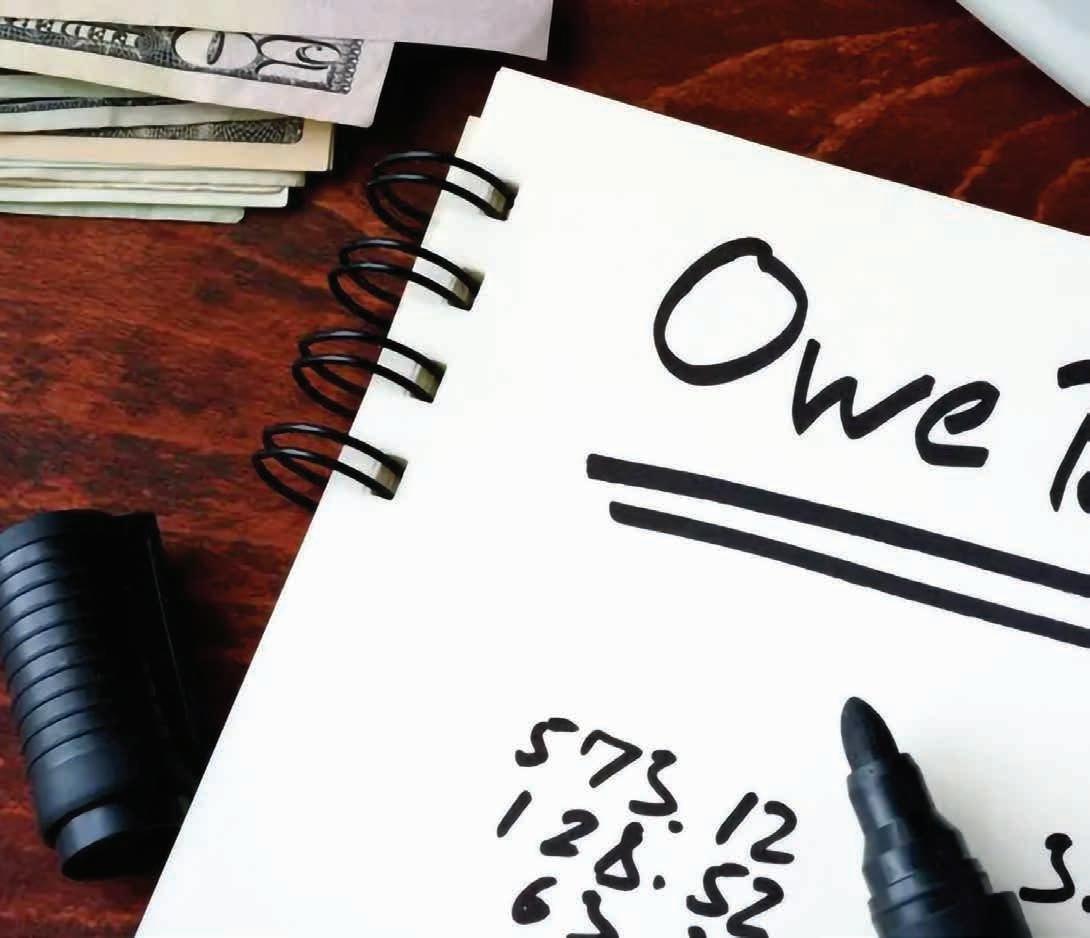

Once the auction concludes and the property is sold, several key steps follow to finalize the transaction and ensure a smooth closing process.
Step 1: Purchase Agreement Execution
• Immediately after the auction, the seller and buyer meet to sign the purchase agreement paperwork.
• Whitaker Marketing Group provides a closing plan.
Step 2: Property Updates and Communication
• Property Updates: Any necessary changes (such as lease transitions, inspections, or property access) are documented and shared with all parties.
• Closing Team Communication
• This phase involves detailed communication to ensure all documents and processes are completed accurately.
• While the brokerage may have less direct contact during this period, the team is actively working behind the scenes.
• A week before closing, the seller is updated on the status and any final steps required.

• Information Sharing: Regular updates are provided to keep both buyer and seller informed throughout the process.
1. The purchase agreement is signed immediately after the auction, and a closing plan is shared.
2. The property is marked as sold, and sale details may be shared publicly unless requested otherwise.
3. The closing process involves coordination among multiple parties to ensure all documents and taxes are handled.
For a seamless post-auction process, trust our team to handle every detail!

A Closing Disclosure is a detailed document that itemizes all fees, costs, and financial details for a farmland transaction. It ensures transparency by breaking down expenses for both the buyer and the seller.
What’s Included in a Closing Disclosure?
1. Buyer and Seller Sections:
• Both sides start with the same total at the top (sale price) and bottom (final amount owed or received).
• The middle section details specific costs for each party.
2. Common Seller Costs:
• Brokerage Fees: Commission charged for the sale.
• Marketing Fees: Costs for advertising and promotion.
• Property Taxes: Prorated to the closing date.
• Transfer Taxes/Revenue Stamps: $1.60 per $1,000 of the sale price.
• Attorney Fees: For title cleanup, deed preparation, or other legal services.
• Abstracting Fees: Updating and verifying property ownership records.
3. Other Potential Costs:
• Title Opinions: Legal review of the property title.
• Banking Fees: Origination or other loan-related charges for buyers.
Why It’s Important
The Closing Disclosure ensures all parties fully understand the financial breakdown of the transaction. It’s a legally required document for transparency and accuracy.

1. A Closing Disclosure lists all costs involved in the transaction for both buyer and seller.
2. Sellers typically see charges for brokerage, marketing, taxes, and legal fees.
3. Transparency ensures that both parties know exactly what they owe or will receive.
For expert guidance and a seamless closing process, contact our team for professional farmland services!
ALC stands for Accredited Land Consultant, a prestigious designation awarded by the Realtors Land Institute (RLI) to professionals who demonstrate expertise and experience in land transactions. It is a mark of excellence in the farmland and real estate industry.
What Does the ALC Designation Represent?
1. Education:
• ALC designees complete advanced courses covering topics like:
2. Experience:
• Candidates must prove they have handled at least $20 million in land sales volume over a five-year period.
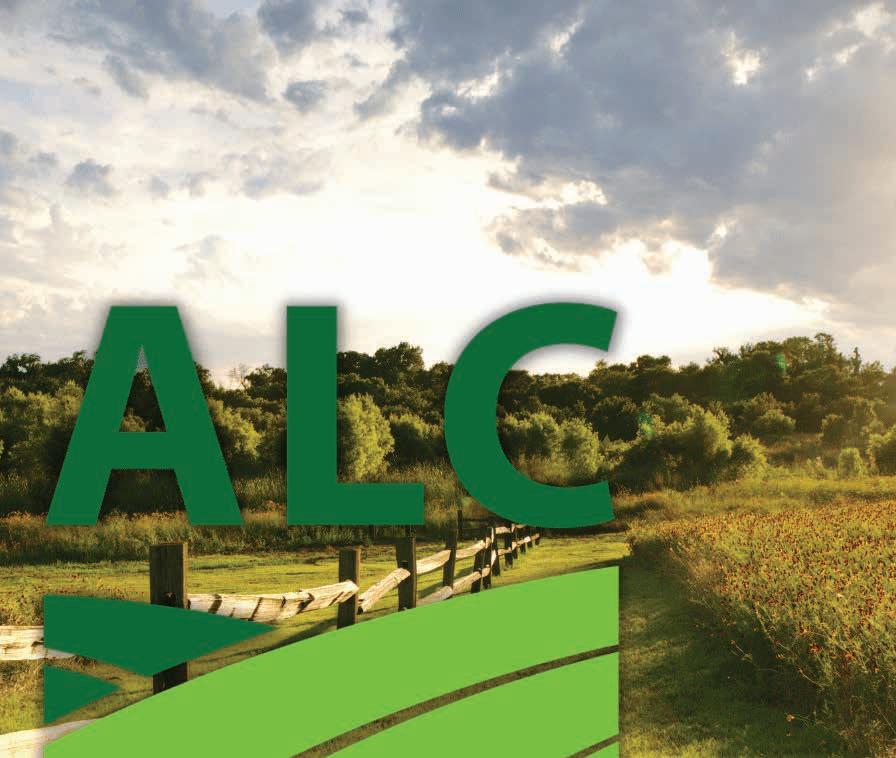
3. Expertise:
• The designation signifies deep knowledge of farmland, market trends, and strategies to optimize land transactions.
Why Does the ALC Designation Matter?
It assures sellers and buyers that they’re working with a professional who has specialized education, proven experience, and a strong commitment to ethical and informed land practices.
Key Takeaways
1. ALC stands for Accredited Land Consultant, a top-tier designation in land brokerage.
2. Requirements include completing specialized coursework and achieving $20 million in land sales volume.
3. Choosing an ALC ensures you’re working with a highly qualified farmland expert.
For guidance from an Accredited Land Consultant, contact David Whitaker –Iowa Land Guy today!
At Whitaker Marketing Group, we provide a wide range of auction formats tailored to meet the needs of sellers and buyers. Each method is designed to maximize engagement and achieve the best results for your property.
1. Live Outcry Auctions
• The traditional auction format with an auctioneer conducting the bidding in real-time.
• Bidders participate in person until the highest, unchallenged bid is reached.
2. Sealed Bid Auctions
• Bids are submitted confidentially by a specific deadline.
• All bids are reviewed at the same time, ensuring fairness and transparency.
3. Hybrid/Simulcast Auctions
• Combines live and online bidding, allowing participants to bid in person or via the internet.
• Ideal for reaching both local and remote buyers.
4. Virtual Auctions
• A live outcry auction conducted entirely online.
• Bidders participate via an internet platform, offering convenience without losing the live auction dynamic.
5. Timed Online-Only Auctions
• No live auctioneer. Bidding occurs over a set timeframe and concludes with a countdown timer.
6. Phone Auctions
• Designed for buyers who cannot attend in person or prefer not to use online platforms.
• Representatives place bids on behalf of the buyer over the phone.
7. Multi-Parcel Auctions
• Used for larger properties divided into multiple tracts.
• Allows bidders to compete on individual tracts, combinations of tracts, or the entire property.

• Soft Close Feature: If a bid is placed in the final two minutes, the timer resets for another five minutes to allow competitive bidding.

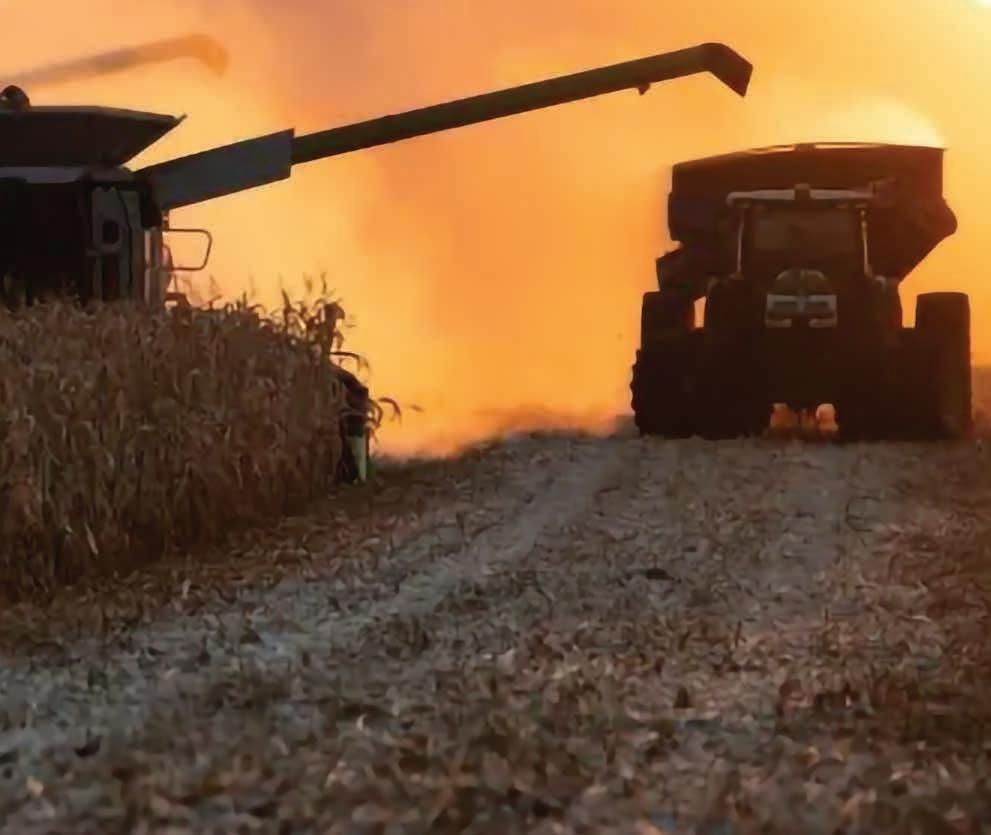
The best time to sell farmland depends on factors like market conditions, seller goals, and timing needs. While specific months may see higher activity, the ultimate answer is: the best time to sell your farm is when you’re ready to sell.
1. Full Bins Sell Farms:
• Farmers are more financially confident after harvest, with full grain bins and a successful crop season.
• This often leads to stronger bidding in late fall and winter.
2. Lease Termination:
• In Iowa, leases are terminated by September 1st, allowing buyers to plan for the next planting season.
• Farms marketed after lease termination often sell in November, historically the busiest month for farmland sales.
3. Early Year Sales:
• January to March is another strong window.
4. Supply and Demand:
• Consider competing properties in your area. Selling during a time of low inventory may increase buyer interest and competition.
Other Factors to Consider
• Personal Needs: Time constraints like estate settlements, 1031 exchanges, or tax planning may influence the timing.
• Market Uniqueness: Unlike equipment, farmland rarely changes hands, making buyers highly motivated when your property becomes available.
What the Data Says
• November: The most active month for farmland sales, often due to lease termination schedules and harvest completion.
• Early Spring: A strong period as farmers finalize their plans and budgets for the upcoming growing season.
1. Fall and early winter (November) and early spring (January–March) are strong times to sell.
2. Market activity and buyer readiness drive competitive bidding during these periods.
3. The best time to sell is when you’re ready, based on your unique circumstances and goals.
For expert guidance on timing and maximizing the value of your farmland, contact our team today!
Predicting the future of the farmland market is challenging, as it depends on various economic, political, and global factors. While no one has a perfect crystal ball, staying informed and understanding key influences can help you make well-educated decisions.
1. Interest Rates:
• Rising interest rates can reduce buyer purchasing power, leading to softer land prices.
• Conversely, lower rates often boost demand and increase competition.
2. Commodity Prices:
• High crop prices typically drive farmland demand, as farmers seek to expand operations.
• Global events, such as trade agreements or conflicts, can impact commodity markets significantly.
3. Economic Conditions:
• Inflation, recessions, or economic growth can all affect the farmland market.
4. Supply and Demand:
• Farmland is a finite resource, and periods of high demand with limited inventory often lead to stronger markets.
• At Whitaker Marketing Group, we monitor market data, Federal Reserve announcements, and global events to provide clients with the latest insights.
• While we can’t predict the future, we can advise you on whether current trends indicate a bullish (strong) or bearish (weak) market outlook.
1. Market conditions are influenced by interest rates, commodity prices, and global events.
2. Farmland markets are cyclical; timing your sale depends on current trends and your personal goals.
3. Stay informed and work with experts who can interpret market signals to guide your decisions.
For up-to-date market insights and expert advice, contact our team today!


Yes, you can sell your interest in a farm, but the process depends on several factors, including how the ownership is structured and whether the farm can be physically or legally divided. Here’s what you need to know.
Key Considerations Before Selling Your Interest
1. Ownership Structure:
• Tenants in Common: Each person owns a share of the farm, often undivided. Example: You own 33% but not specific acres.
• Partnership or LLC: Rules for selling your interest depend on the articles of organization or partnership agreement.
• The judge will determine if physical division of the land is feasible or if a court-ordered sale is the more appropriate remedy.
• If sold, proceeds are typically divided among the owners according to their ownership percentages.
3. Family Dynamics:
• If co-owners prefer to keep the farm but one person wants to sell, family members might buy out your share to avoid court action.
• Communication and mediation are key to maintaining family harmony.
4. Legal and Professional Support:

• Divided Ownership: Specific tracts are owned individually, such as “I own this 40 acres, and my sibling owns another 40 acres.”
2. Partition Action (Iowa Law):
• If you own more than 25% interest, you can file a partition action to force the division or sale of the property.
• Work with an attorney to navigate the legal aspects.
• Consult a farmland broker to value your interest and explore selling options.
Selling Your Interest in Specific Scenarios
• Inherited Farms: Selling depends on estate terms, co-owner agreements, and proper title transfer. Shared ownership among heirs may require coordination or legal action
• Partnerships or LLCs: Your ability to sell is governed by the operating agreement, which may include approval requirements or a right of first refusal for other members.
1. You can sell your farm interest, but the process depends on ownership type and legal agreements.
2. A partition action can legally force the division or sale of the property if you own more than 25%.
3. Work with an attorney and broker to navigate legal requirements and family dynamics.
For guidance on selling your farm interest, contact our team for professional support!
Tax basis is the starting value used to determine the gain or loss when you sell an asset, such as farmland. It plays a critical role in calculating taxes and can significantly impact your tax liability.
How Tax Basis is Determined
1. Initial Basis:
• If you purchased the farm, your basis is the purchase price.
• If you inherited the farm, the basis is the market value at the time of the original owner’s death.
2. Split Basis:
• If you inherit portions of the farm at different times, the basis may vary for each portion based on its value at the time you inherited it.
3. Adjustments to Basis:
• Improvements: Adding value to the farm increases the tax basis (e.g., installing drain tile, building barns, or wind turbines).
• Depreciation: Certain assets, like buildings or equipment, may decrease the tax basis over time due to depreciation deductions.
• Calculating Capital Gains:
• When you sell, your taxable gain is the difference between the sale price and your tax basis.
• A higher basis means a lower taxable gain, reducing your tax liability.
• Example:
• If your farm’s tax basis is $500,000 and you sell it for $1,000,000, your taxable gain is $500,000.
• Improvements, such as adding $50,000 for a new barn, increase the basis to $550,000, reducing your taxable gain to $450,000.
Considerations for Farmland Owners
1. Inheritance:
• The "stepped-up basis" rule for inherited assets provides a basis equal to the market value at the time of inheritance.
• This can reduce capital gains taxes when selling.
2. Record Keeping:
• Maintain detailed records of all improvements, purchases, and depreciation to accurately calculate your basis.
3. Professional Guidance:
• Consulting a tax professional ensures your basis is calculated correctly, maximizing tax savings and avoiding errors.


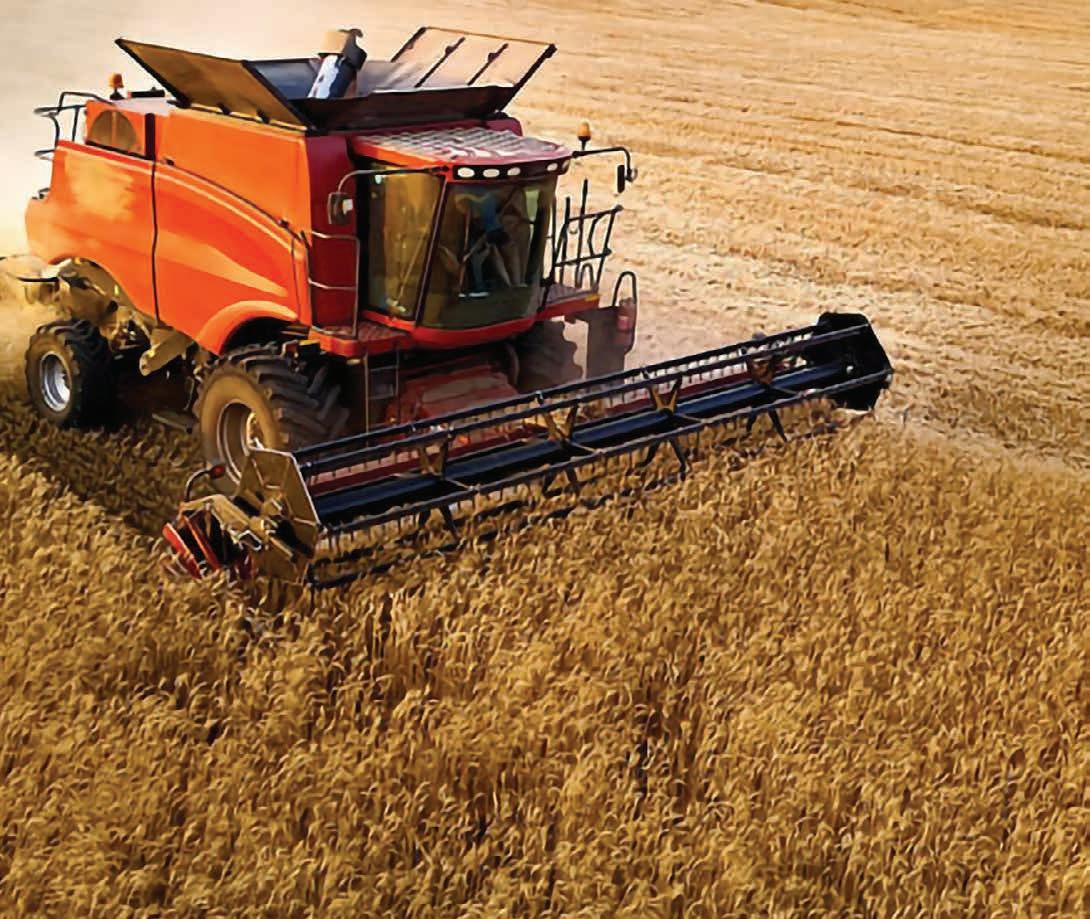
Yes, we can! At Whitaker Marketing Group, we offer professional farm management services to ensure your land is managed with care, expertise, and dedication to maintaining its productivity and your family’s legacy.
Why Consider Farm Management?
Farm management is ideal for those who:
• Have inherited farmland but lack agricultural experience.
• Want to ensure land stewardship aligns with family values and traditions.
• Prefer not to manage tenant relationships or handle complex operational decisions.
How We Help Manage Your Farm
1. Tenant Relations:
• We handle communication with tenants to ensure agreements are clear and expectations are met.
• This includes negotiating cash rent and addressing concerns on your behalf.
2. Farm Stewardship:
• We oversee land care to maintain soil health, productivity, and sustainable practices, ensuring your farm continues to thrive.
3. Tailored Solutions:
• We adapt our management approach to your farm’s unique needs and goals, focusing on maximizing both yield and profit.
4. Transparent Communication:
• Regular updates and financial reporting keep you informed about the farm’s performance and operations.
Comprehensive Farm Management Services
• Crop Planning and Management: Oversee planting, harvesting, and soil management for optimal productivity.
• Financial Oversight: Budgeting, reporting, and maximizing profitability.
• Tenant and Lease Management: Handle lease agreements and tenant relationships.
• Regulatory Compliance: Ensure adherence to agricultural laws and minimize risks.
Yes, breaks are typically taken during farmland auctions to ensure the process is fair, transparent, and accommodating to both buyers and sellers. Farmland auctions are high-stakes transactions, and breaks provide an opportunity to address critical aspects of the auction process.
Why Do Auctions Include Breaks?
1. Decision Time for Bidders:
• Farmland purchases involve significant financial decisions, and breaks give bidders time to consider their next moves without feeling rushed.
2. Seller Updates:
• During the break, the auctioneer consults with the seller to to review progress and evaluate bidding activity.
3. Finalizing Buyer Confidence:
• Once bidders know the farm will sell, they’re more likely to place serious bids.
• Many buyers prefer not to reveal their financial limits until they are certain the property will be sold.
4. Technical Adjustments:
• Breaks also provide time to address issues like slow internet connections for online bidders, ensuring everyone has equal opportunity to participate.
5. Crowd Management:
• Auctioneers use breaks to read the room, assess energy levels, and maintain a fair and transparent environment.
How Breaks Are Conducted
• Refreshments: Treats are often provided during the break to keep attendees comfortable.
1. Farm management ensures your land is productive and well-cared for, even if you lack experience or time.
2. We handle tenant relationships, operational decisions, and land stewardship with professionalism and expertise.
3. Transparent communication keeps you informed while we handle the details.
If you're looking for professional farm management services tailored to your needs, contact our team today to discuss how we can help your farm succeed!
1. Breaks in farmland auctions are essential for fairness, transparency, and strategic decision-making.
2. Sellers and auctioneers use the time to evaluate progress and determine next steps.
3. Breaks accommodate both in-person and online bidders, ensuring a seamless process.
For professional auction services designed to maximize your farmland’s value, contact our team today.

• Transparency: Sellers are briefed privately, and clear announcements are made to bidders about the auction’s status when the break ends.

This is a nuanced question that involves a mix of family ties, business relationships, and financial goals. Whether to offer your farmland to the current tenant depends on your priorities and desired outcomes.
Reasons to Offer the Farm to the Tenant
1. Good Relationships:
• If the tenant has treated you or your family well over the years (e.g., helping maintain the land or supporting family members), it may feel like the right thing to do.
2. Convenience:
1. Pricing the Farm:
• Fair Value: Obtain a farmland valuation or appraisal to determine the fair market price.
• Missed Opportunity?: Selling directly to the tenant may leave you questioning whether you could have received a higher price through competitive bidding.
2. Tenant’s Financial Readiness:
• Can the tenant afford to buy the farm? If not, this approach could delay the sale.
3. Your Goals:

• Offering the farm directly to the tenant simplifies the sale process, potentially saving time and avoiding the need for widespread marketing.
3. Legacy Preservation:
• If the tenant shares your values for land stewardship, this could ensure your family’s legacy is upheld.
Yes, Whitaker Marketing Group has a national presence. While most buyers of Iowa farmland are local producers, our marketing strategy ensures your property reaches a broad audience, including investors and specialized buyers from across the country.
Local vs. National Buyer Dynamics
1. Local Producers:
• Most Iowa farmland is purchased by farmers or landowners within 50 miles of the property.
• These buyers are typically focused on production agriculture, such as corn and soybean farming.
2. National Buyers:
• Farms with unique attributes—such as hunting ground or recreational land in southern Iowa—are more likely to attract buyers from out of state.
• Maximizing Sale Price: If your priority is to get the highest price, opening the sale to a larger audience may be a better option.
• Personal Preference: Sometimes, sellers prefer to ensure the tenant doesn’t own the land, depending on personal dynamics or future use concerns.
1. Communicate: Have an open and honest conversation with your tenant to understand their interest and financial ability.
2. Determine Your Goals: Clarify your priorities—whether you're focused on financial return, speed, preserving family legacy, or maintaining relationships.
3. Get Professional Advice: Work with a farmland broker or attorney to evaluate your options, including fair market value, legal obligations, and sale structure.
• Investors from across the country may also seek farmland as a stable, long-term investment.
How We Market to a
1. Targeted National Campaigns:
• We utilize national platforms, websites, and investor networks to showcase your property.
2. Tailored Strategies:
• The approach depends on your farm’s characteristics—location, use, and buyer profile.
3. Reaching All Buyer Types:
• Our goal is to connect with every potential buyer, whether they are a local farmer or a national investor, to maximize your property’s exposure and value.
1. Yes, we have a national presence, ensuring your farm reaches all potential buyers.
2. Local producers dominate purchases of production agriculture, while national buyers are more common for hunting or investment properties.
3. Every farm is marketed broadly to ensure the best possible outcome for the seller.
For a tailored marketing strategy to reach the right buyers for your farm, contact our team today!

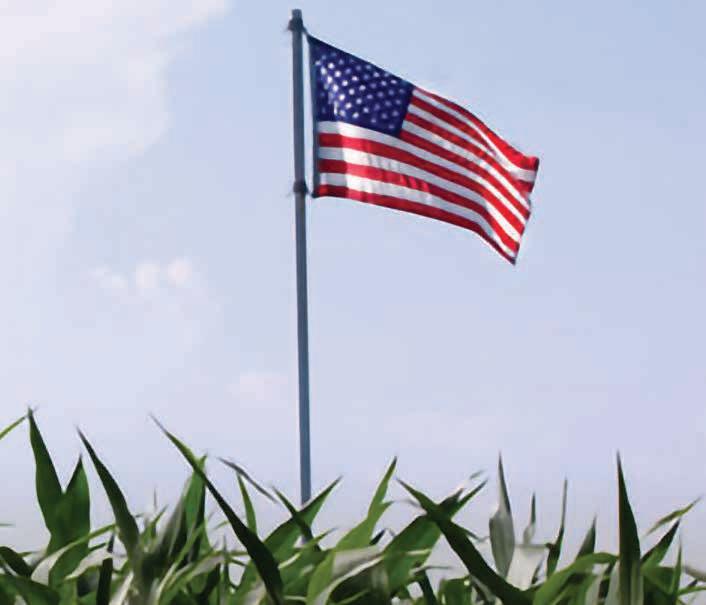
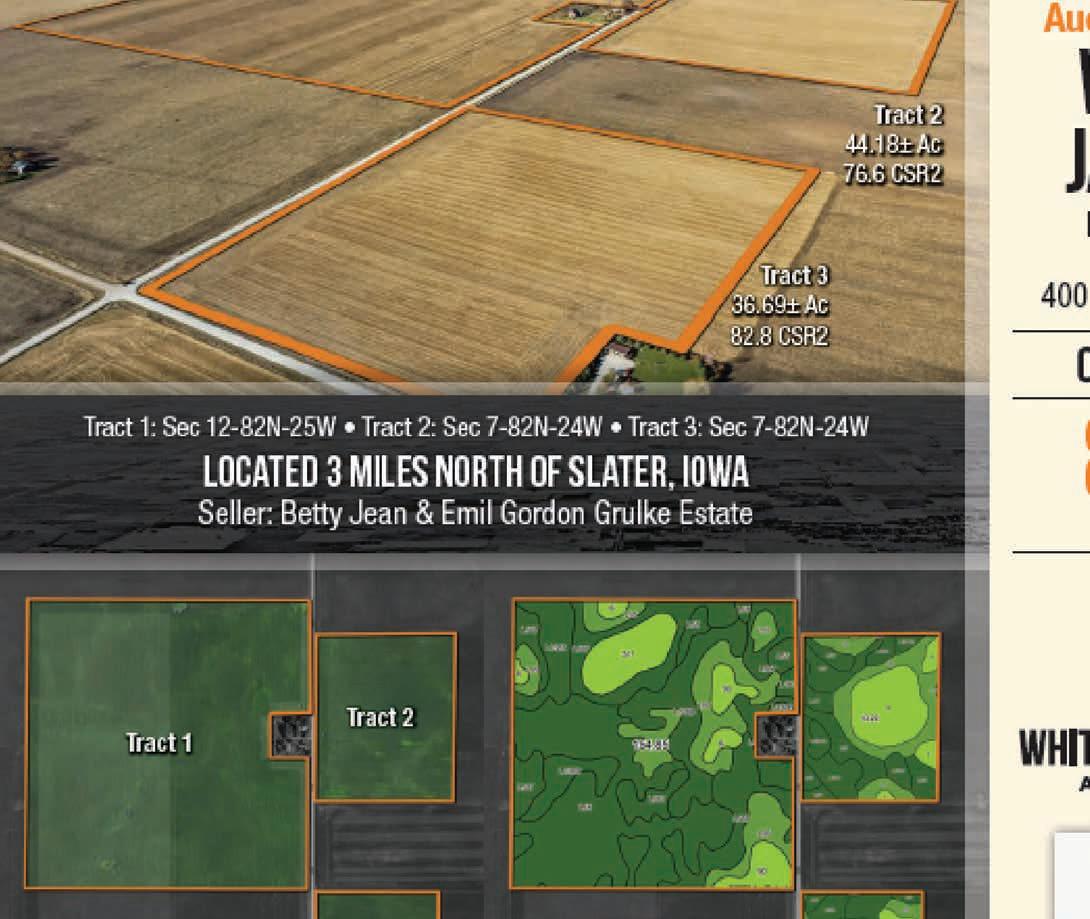
Yes, absolutely! At Whitaker Marketing Group, we encourage including your family name on sale flyers to honor your legacy and create a personal connection with potential buyers.
Why Add the Family Name?
1. Preserving Legacy:
• Highlighting your family name shows pride in your history and ties to the land.
• It creates a meaningful story that resonates with the audience.
2. Building Trust:
• A family name adds authenticity and trustworthiness to the property’s presentation.
3. Personalized Marketing:
• Buyers feel more connected to properties with a personal touch, increasing engagement.
Dissolving a Limited Liability Company (LLC) is a multi-step process that ensures the business is closed legally and all financial and legal obligations are addressed. While consulting an attorney is recommended, here’s a general guide to help you understand the process.
Key Steps to Dissolve an LLC
1. Review the Operating Agreement or Articles of Organization
• Most LLCs have an operating agreement that outlines the steps for dissolution, including voting requirements, notice provisions, dissolution procedures, and asset distribution.
2. Obtain Member Agreement
• Hold a formal vote among LLC members to decide on dissolution.
• Document the decision in meeting minutes or a resolution for legal and financial records.
1. Professional Design:
• Our in-house graphics team works closely with you to incorporate your family name into the flyer design while maintaining a professional aesthetic.
2. Visual Storytelling:
• Include photos of landmarks like old barns, grain bins, or other iconic features that tell your farm’s story.
• We can capture high-quality photos to ensure your property’s legacy shines through.
3. Tailored Placement:
• The family name can be prominently featured in the flyer’s title, tagline, or within the design to create a warm, personal feel.
Examples of Custom Flyer Elements
• Title: “The Smith Family Farm – A Legacy of Excellence”
• Tagline: “Preserving Iowa’s Agricultural Heritage, One Farm at a Time”
• Visuals: Historic family landmarks or a photo of the farm in its prime.
1. Including your family name adds a personal touch, creating an emotional connection with buyers.
2. Our design team ensures your name is integrated seamlessly while maintaining a polished, professional look.
3. Personalized flyers are an excellent way to highlight your farm’s unique story and value.
For beautifully designed, personalized flyers that honor your legacy, contact our team today!
3. Notify Creditors
• Inform creditors and any other stakeholders about the dissolution.
• This ensures all outstanding obligations are addressed and protects members from future liabilities.
4. Settle Debts and Obligations
• Pay off any outstanding debts.
• Resolve disputes or legal claims.
• If assets exceed liabilities, distribute remaining assets among members according to the operating agreement.
5. File Articles of Dissolution
• Submit the Articles of Dissolution to the Secretary of State or relevant business registration agency in your state.
• This legally ends the LLC’s status and eliminates ongoing filing or fee obligations.
6. Cancel Licenses and Permits
• Cancel any business licenses, permits, or registrations to avoid future fees or penalties.File Final Tax Returns
• File the LLC’s final state and federal tax returns, indicating that these are the final returns for the entity.
• Settle any outstanding tax obligations.
Additional Considerations
Ownership Disputes:
• If there’s disagreement among members, a court may need to intervene to settle disputes or enforce dissolution terms.
Records Retention:
• Maintain business records for several years after dissolution for tax purposes or potential audits.
Special Circumstances:
• For partnerships or LLCs owning farmland, consider the unique tax implications of selling agricultural assets and distributing proceeds.


Adding value to your farmland often revolves around improving its productivity, usability, and appeal. In Iowa, where farmland values are driven by production agriculture, strategies to maximize tillable acres and efficiency are key.
Strategies to Add Value to Your Farmland
1. Increase Tillable Acres:
• Clear Non-Productive Areas: Remove brush, trees, or unused structures to maximize usable acreage
• .Address Wet Areas: Install tile drainage or other improvements to convert low-yield ground into productive farmland.
2. Improve Infrastructure:
• Terracing: Add terraces to hilly or sloped land to reduce erosion and improve usability.
• Cleanup Old Structures: Remove outdated or unsafe buildings to improve aesthetics and enhance the land’s usability.
3. Focus on Production Potential:
• Evaluate soil health and consider adding nutrients or making other improvements to boost crop yields.
• Update irrigation systems or other tools to ensure consistent production across all acres.
4. Tailor Improvements to Buyer Needs:
• Iowa Production Farms: Focus on maximizing acres and production capacity.
• Hunting or Recreational Properties: Preserve trees, ponds, and features attractive to outdoor enthusiasts.
5. Market Specific Features:
• Highlight improvements like drainage systems, increased tillable acreage, or updated infrastructure in marketing materials.

Key Takeaways
1. More Tillable Acres = Higher Value: Clear trees, add drainage, and rework land to maximize farmable space.
2. Think Like a Producer: Iowa buyers prioritize productive land, so focus on improvements that enhance production value.
3. Tailor to Property Type: Adjust your strategy based on whether the land’s value lies in agriculture, recreation, or other uses.
For expert advice on increasing the value of your farmland and connecting with motivated buyers, contact our team today!
Yes, you can sell personal property, such as farm equipment, alongside your farmland. At Whitaker Marketing Group, we offer a comprehensive solution that includes both farmland and personal property sales, ensuring a seamless and efficient process.
Why Combine Land and Personal Property Sales?
1. Convenience:
• Selling everything together simplifies the process for you, avoiding the need to work with multiple agents or services.
2. Appeal to Buyers:
• Buyers often value the ability to purchase a “turnkey” operation, including land and equipment.
3. Maximized Exposure:
• Bundling personal property with the land sale can attract a broader range of buyers, including those looking for readyto-use farming operations.
1. Farm Machinery Experience:
• With years of experience in selling farm equipment, we know how to market tractors, combines, plows, and other assets effectively.
2. Robust Buyer Network:
• We have a large network of interested buyers for farm machinery and personal property, ensuring your items are marketed to the right audience.
3. Tailored Marketing Strategies:
• Each piece of equipment is evaluated and marketed individually to maximize its value.
How We Handle Combined Sales
1. Seamless Integration:
• We incorporate personal property into the farmland sale, presenting a unified and professional offering to potential buyers.
2. Valuation and Presentation:
• Our team accurately values your equipment and personal property, highlighting its importance alongside the land.
3. One-Stop Service:
• We handle all aspects of the sale, from farmland to machinery, offering you a hassle-free experience.

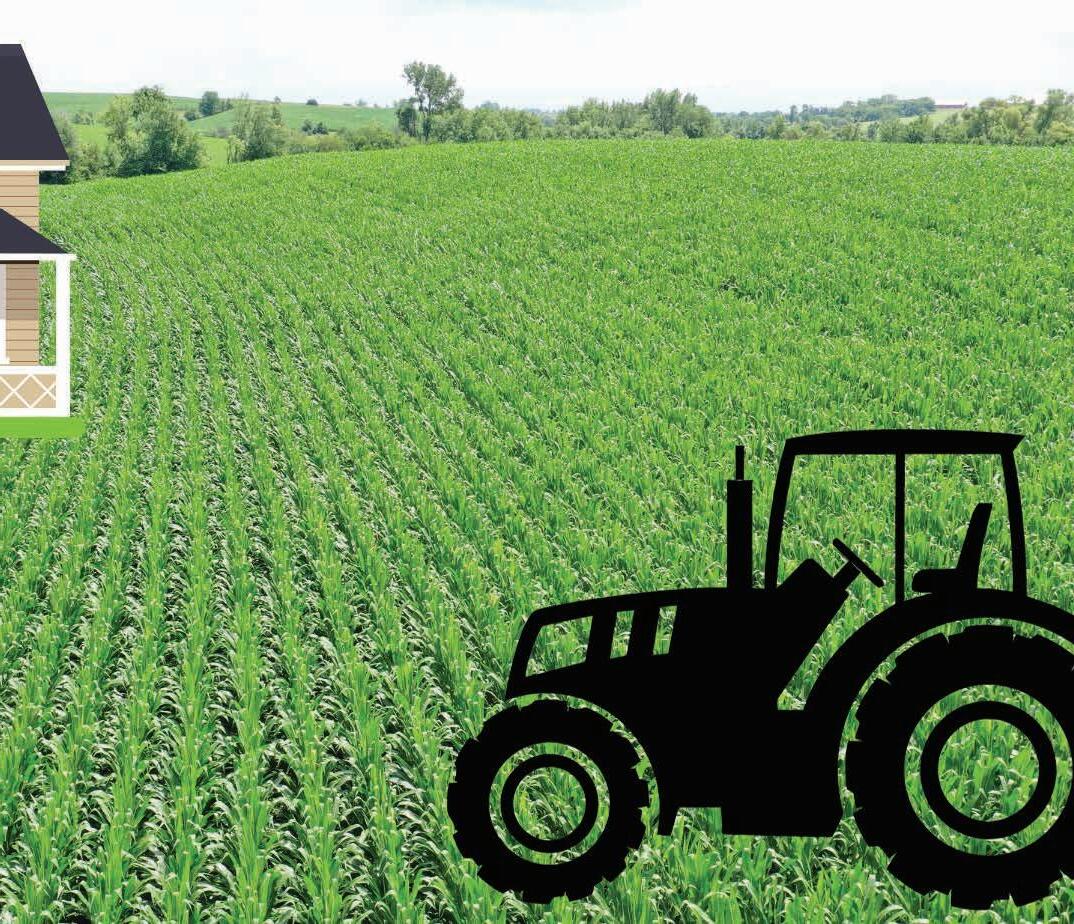
The Farm Service Agency (FSA) is a government agency under the U.S. Department of Agriculture (USDA) that provides programs and services to support farmers and landowners. Its primary goal is to help farmers manage risk, improve land productivity, and ensure the stability of agricultural production in the U.S.
Key Functions of the FSA
1. Farm Programs:
• Provides financial assistance through subsidies, disaster relief, and conservation programs.
• Administers the Agriculture Risk Coverage (ARC) and Price Loss Coverage (PLC) programs to stabilize farm income.
2. Farm Loans:
3. Conservation Efforts:
• Oversees the Conservation Reserve Program (CRP), where landowners are paid to remove environmentally sensitive land from production to improve soil and water quality.
4. Farm Records Management:
• Maintains essential records about farm acres, crop history, and ownership, which are used for program eligibility and compliance.
5. Disaster Assistance:
• Provides relief to farmers affected by natural disasters like droughts, floods, or hurricanes.
Why is the FSA Important for Farmland Owners?

• Offers loans for farm ownership, operations, and emergency needs.
• Helps new and disadvantaged farmers gain access to capital.
• Access to Resources: Provides financial tools and resources to manage risks and improve profitability.
• Support for Land Improvements: Offers cost-sharing programs for conservation and productivity improvements.
Whether or not you need an appraisal depends on your specific situation, such as selling, settling an estate, or determining tax basis. While an auction often serves as a live, real-time appraisal, there are instances where a formal or certified appraisal is necessary.
When Do You Need an Appraisal?
1. For Tax Purposes:
• A date-of-death appraisal establishes the farm’s value at the time it was inherited. This value is critical for determining your tax basis.
2. For Legal Situations:
• Certified appraisals are often required for court cases, probate, or divorce proceedings.
3. For Selling the Farm:
• In most cases, a broker’s opinion of value or a land valuation is sufficient to price the farm before listing it.
Methods Used to Determine Farm Value
1. Comparable Sales Approach:
• Examines recent sales of similar farms (e.g., within 8–50 miles) to determine value.
• Considers factors like soil type, topography, and farmability.
2. Income/Cost Approach:
• Evaluates the farm's potential income (e.g., rental income or crop yields).
• Uses cap rate (e.g., 2.5%-5%) to calculate what an investor would pay for a specific return.
• Reliable Records: Helps document farm history, which can be critical during sales or transfers.
1. The FSA supports farmers and landowners with loans, conservation programs, and disaster relief.
2. It plays a vital role in managing farmland records and ensuring compliance with government programs.
3. Partnering with the FSA can improve your farm’s productivity and financial stability.
For assistance with FSA forms or understanding how their programs apply to your land, contact our team today!
Key Considerations
1. When to Get an Appraisal:
• Legal or tax requirements (e.g., estate, divorce).
• If an attorney or court mandates it
2. When a Broker’s Opinion is Enough:
• For selling or pricing the farm in most non-legal scenarios.
• Offers data-driven insights at a lower cost.
3. What to Look For:
• Professionals should back their valuation with current data.
• Avoid vague estimates; insist on comparable sales or cap rate analysis.


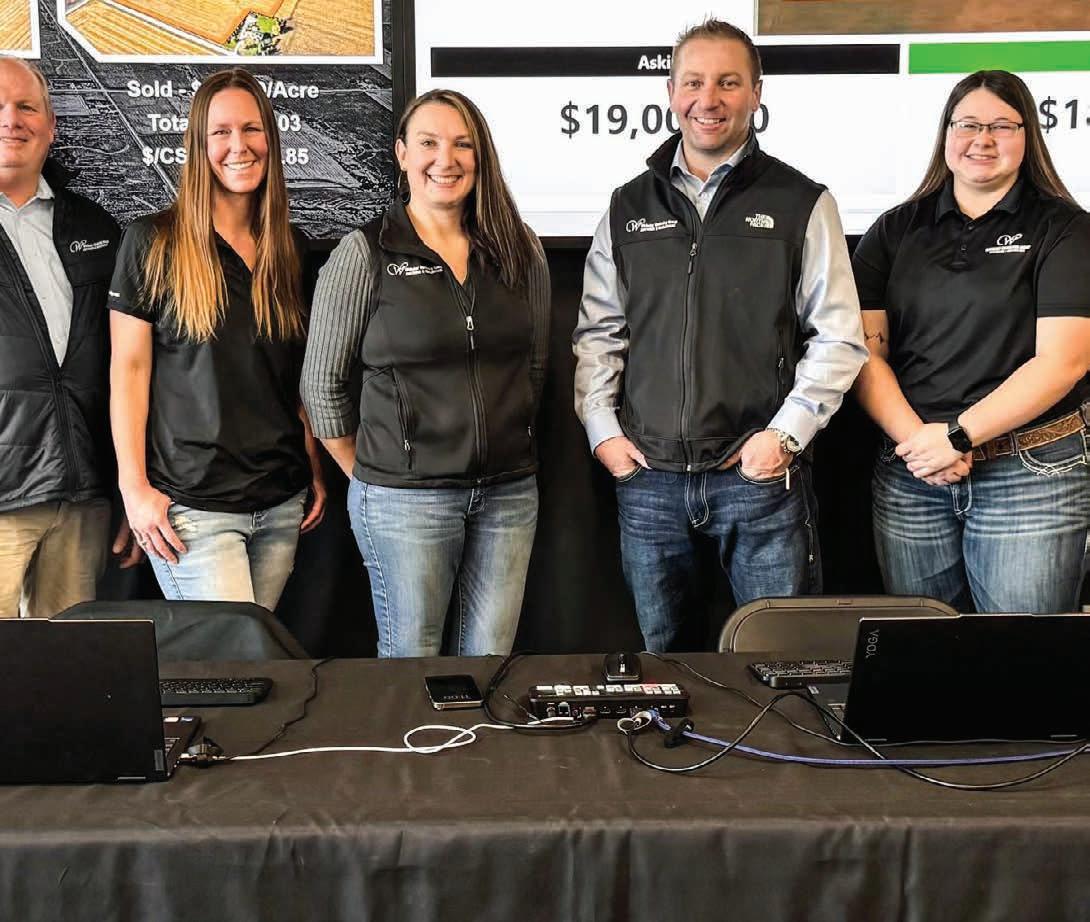
Yes, the auctioneer matters greatly when it comes to selling farmland. The auctioneer’s ability to read the crowd, process information quickly, and make splitsecond decisions can significantly impact the outcome of the sale—and ultimately, the price you receive for your property.
1. Real-Time Crowd Engagement:
• The auctioneer is having a one-sided conversation with a room full of potential bidders, interpreting signals such as body language, eye contact, and pacing.
• Their role is to keep the momentum and energy in the room alive while ensuring every bidder has an opportunity to participate.
2. Reading the Crowd:
• A skilled auctioneer can sense hesitation or interest in the crowd.
• Example: If a bidder is on the verge of raising their bid, the auctioneer might take a break to allow them time to decide, increasing the chances of securing a higher bid.
3. Maximizing Value:
• The auctioneer’s ability to recognize when additional bids are possible can add significant value.
• For example, just two extra bids on 300 acres at $100 per acre could add $60,000 to the final sale price.
4. Managing Complexity:
• Auctions involve managing inperson, phone, and online bidders simultaneously.
• The auctioneer ensures no bid is missed and that all participants feel engaged, regardless of location.
5. Representing the Seller:
• The auctioneer works fiduciary for the seller, ensuring that the property is sold at the best possible price while maintaining fairness and transparency.
1. The auctioneer’s role is critical to the success of your sale—they ensure that no opportunity for higher bids is missed.
2. A skilled auctioneer can read subtle cues and take strategic actions, like breaks, to encourage more bidding.
3. The right auctioneer doesn’t just sell your property; they maximize its value through expertise and crowd engagement.
Yes, Whitaker Marketing Group sells farmland in every county in Iowa and across multiple states in the Midwest. No matter where your property is located, we have the tools and expertise to market your farm to the right buyers.
1. Extensive Local Knowledge:
• We maintain a detailed database of local buyers and landowners in every county.
• Our familiarity with local markets ensures your property is presented to the most interested and qualified buyers.
2. Comprehensive Marketing Reach:
• We’ve compiled a list of landowners in each county, allowing us to market directly to those who may have a vested interest in your farm.
• Our approach targets buyers both locally and regionally, ensuring maximum exposure.
3. Broad Regional Presence:
• In addition to Iowa, we conduct sales in neighboring Midwest states, expanding your buyer pool.
4. Customized Strategies:
• Each county has its own unique market dynamics. Our tailored marketing strategies are designed to resonate with local buyers while leveraging our statewide and regional reach.
How We Market Your Farm
• Direct Mail Campaigns: Targeting neighboring landowners and past buyers in your county.
• Local Relationships: Leveraging our network of buyers, farmers, and investors in your area.
1. Yes, we sell in your county, no matter where it is in Iowa or the Midwest.
2. Our extensive database of local buyers and landowners ensures effective, targeted marketing.
3. By combining local expertise with regional reach, we deliver maximum exposure and value for your farmland.

• Online Advertising: Utilizing platforms with national and regional reach to attract a broad audience.

At Whitaker Marketing Group, we employ a blend of old-school techniques and newschool digital marketing strategies to ensure your farmland gets maximum exposure. Our comprehensive advertising plan is designed to leave no stone unturned, targeting both local and national buyers to yield the highest and best price for your property.
Traditional Advertising ("Old School")
1. Signage:
• Large Signs on the Property: We use fourfoot signs to grab attention, ensuring passersby and local farmers know about the sale.
Digital Marketing ("New School")
1. Social Media Campaigns:
• Platforms include Facebook, Instagram, TikTok, and others.
• Leveraging remarketing ads to reach potential buyers who have already shown interest in farmland.
2. Search Engine Optimization (SEO) and Ads:
• Targeting keywords like “farmland for sale” or “farm for sale near me” to appear in relevant online searches.
• Ensuring your property gets visibility on Google and other search engines.
3. Syndicated Websites:
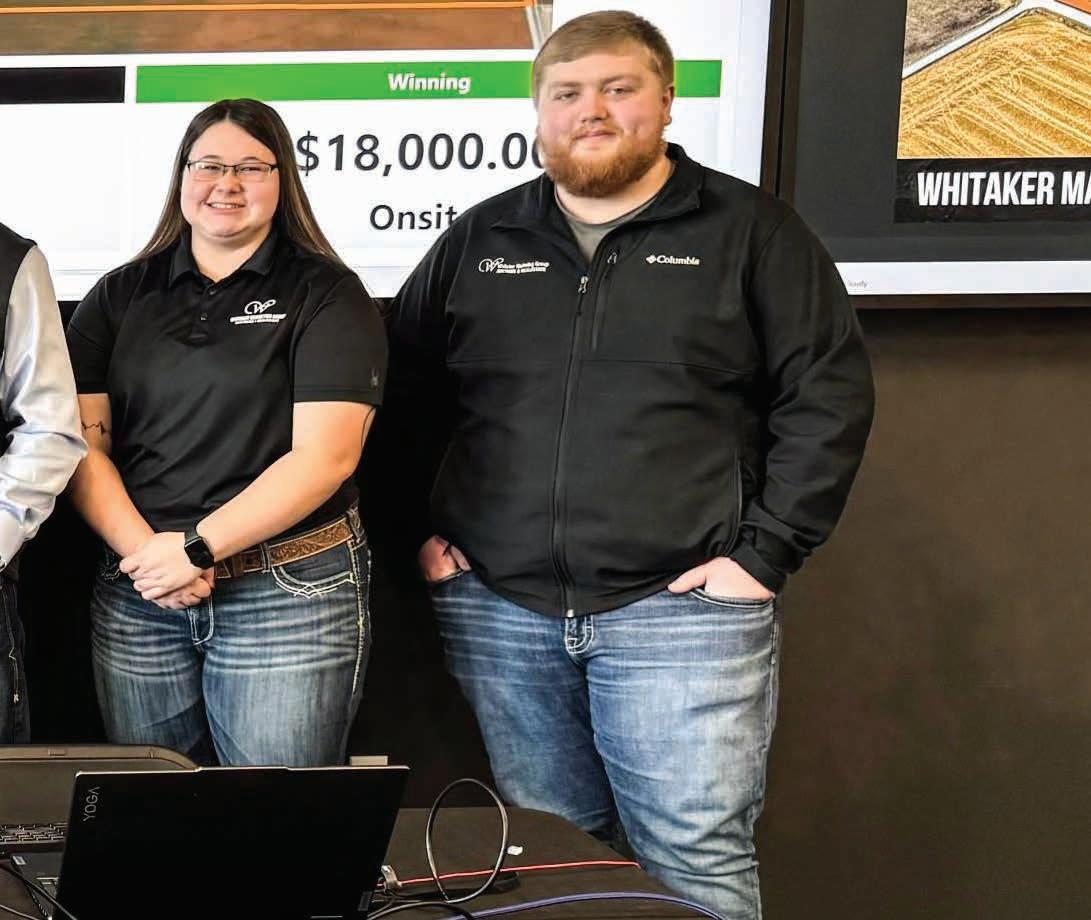
• Wayfinding Signs: Placed on nearby paved roads to guide potential buyers to the property.
2. Direct Mail:
• Disruptive Marketing: We send postcards and brochures directly to local landowners and farmers.
• Targeted Approach: Using USDA and farm ID records, we focus on farmers and landowners within a 50-mile radius.
3. Local Networking:
• Coffee Shops and Co-Ops: Our agents build relationships with local farmers and community members.
• Flyers and Booklets: Professionally designed materials are distributed at banks, law offices, grain elevators, and other key locations.
4. Newspapers and Radio Ads:
• Local and Regional Newspapers: To reach a broader audience in rural areas.
• Customized Radio Spots: Targeted to local and regional listeners.
• Listings on platforms like LandWatch.com, LandsOfAmerica.com, LandAndFarm.com, and LandBrokerMLS.com.
• These platforms attract investors and buyers beyond the local market.
4. Drone Videos:
• Professional Aerial Videos: Showcasing your farm’s topography, crop potential, and scenic features.
• Videos are embedded in online listings and shared across social media to capture attention.
5. Email Marketing:
• Sending tailored email campaigns to our database of qualified buyers and investors.
6. Podcast:
• Ag specicific listening audience:
7. Programatic Advertising:
• Spotify, Netflix, Hulu, etc.
Why Our Strategy Works
1. Local Expertise + National Reach:
• Our agents are embedded in communities across Iowa and the Midwest, maintaining strong relationships with local farmers while reaching out to national investors.
2. Data-Driven Targeting:
• Using geospatial tools and market insights, we focus our efforts on the buyers most likely to bid on your farm.
3. Comprehensive Coverage:
• Whether it’s an in-person flyer, a social media ad, or a website listing, we ensure every potential buyer has multiple opportunities to see your property.
1. Old School Meets New School: From signs and coffee shop flyers to social media ads and drone videos, our strategy combines proven traditional methods with modern digital tools.
2. Targeted and Comprehensive: We focus on local farmers while reaching national investors to ensure maximum exposure.
3. Tailored Marketing: Every farm is unique, and so is our approach. We customize marketing strategies to highlight your property’s best features. To learn more about how we can market your farmland effectively and get the best outcome for your sale, contact our team today!


Yes, you can use a 1031 Tax-Deferred Exchange to reinvest proceeds from selling farmland into a new building or facility. This process, called an improvement exchange, allows you to defer taxes while transitioning your investment into structures like hog barns, cattle buildings, or shops.
How an Improvement Exchange Works
1. Eligible Projects:
• Proceeds can be reinvested into a new building or facility instead of farmland.
• Examples: Livestock barns, storage sheds, or machinery shops.
2. Key Rules:
• 45-Day Identification Period: You must identify the property or project where funds will be reinvested.
• 180-Day Completion Period: The building must be constructed and completed within 180 days of the sale.
• Materials purchased but not installed do not qualify—construction must be fully finished by the deadline.
3. Timing is Critical:
• Contractors, materials, and plans must be ready before you sell your property.
• The building process should begin immediately after the sale to meet the 180-day requirement.


1. A 1031 Improvement Exchange allows you to reinvest proceeds into new structures instead of farmland.
2. The building must be completed within 180 days to qualify.
3. Advance preparation is essential for meeting the strict time limits.
For expert guidance and seamless execution of your 1031 exchange, contact our team today!

Great Attorneys Recommended by Whitaker
Eric Neu
Minnich, Comito,Neu & Hawley, P.C. Carroll, IA (712) 792-3508 eric@nmcnlaw.com
Ben Doran
Doran Law Firm PLC Boone, IA (515) 432-1355 doran@boonelawyers.com
Jeff Lamberti
Lamberti, Murphy, & Strong PC Ankeny, IA (515) 964-8777 jeff.lamberti@ankenylaw.com
Katie Tegtmeier
BrownWinick Law Firm
Des Moines, IA (515) 242-2400
katie.tegtmeier@brownwinick.com
Taylor Nederhoff
Stockdale Law, PLC Iowa Falls, IA (641) 648-5083 tnederhoff@iowafallslaw.com
Jennifer l. Zahradnik
Kollmorgen, Schlue & Zahradnik, P.C.
Belle Plaine, IA (319) 444-3285
Jennifer@kszlaw.net
Marty Stoll
Shuttleworth & Ingersoll, P.L.C.
235 6th St. SE P.O. Box 2107
Cedar Rapids, IA 52406-2107 (319) 365-9461
www.shuttleworthlaw.com
David Brown
IPE1031 (1031 Exchange Attourney) 6150 Villageview Dr. Ste 113 West Des Moines, IA 50266 (515) 279-1111 www.ipe1031.com


Q1. When you're evaluating farmland, what key features or characteristics do you look for that others might overlook but you consider crucial to its value?
A1. Tile maps and fertility.
Q2. How do you balance the importance of soil quality, location, and property improvements when making a buying decision?
A2. All are important.
Q3. What research methods or resources have been the most valuable to you when assessing potential farmland purchases?
A3. CSR maps, tile maps, drive the farm.
Q4. Based on your experience, do you see any distinct advantages to buying farmland at auction versus a private sale? Why?
A4. No, auctions go higher than private, the auction favors the seller.
Q5. What has been the most rewarding aspect of owning farmland—something you didn’t fully anticipate before making your first purchase?
A5. Control your own future, you get the rewards of your work, not a landlord or their off farm heirs.
Q1. When you're evaluating farmland, what key features or characteristics do you look for that others might overlook but you consider crucial to its value?
A1. Cost ratio to Value and/or potential. As a younger and lower capital farmland owner I can't afford a mistake. The cost has to either be under the current value or the land must have better than average potential to be able to pay at or above market rate. Location is key

Q2. How do you balance the importance of soil quality, location, and property improvements when making a buying decision?
A2. See number 1, it's all a giant weighted equation in my head. If you have to give up in one area it better more than make up for it in another.
Q3. What research methods or resources have been the most valuable to you when assessing potential farmland purchases?
A3. Relationships are number 1. It's not what you know, it's who you know. Lots of tools like assessor's websites, online plat books, online tools and AI are great, but they are just that, tools. Relationships are king.
Q4. Based on your experience, do you see any distinct advantages to buying farmland at auction versus a private sale? Why?
A4. I typically prefer to purchase privately to control terms, conditions, and privacy but this time it worked out great as the timing and scope was perfect for my 1031 exchange. It comes down to I will not shy away from any form of sale as long as it fits my metrics.
Q5. What has been the most rewarding aspect of owning farmland—something you didn’t fully anticipate before making your first purchase?
A5. The store of wealth and long-term appreciation of land is tremendous! The biggest and hardest thing was to separate my passion to farm from the farmland I have bought. One of the pieces I purchased I will not even farm myself, but the ROI is better than farming it myself.
Q1. In your opinion, what’s the biggest advantage of selling farmland at auction compared to the traditional listing process?
A1. Knowing you are getting the highest price from the highest bid. The farmland/property sells "as is". The marketing strategy The Whitaker Marketing team does is not only statewide, but nationwide. You hit all interested parties and all it takes is two bidders who really want the property. In both cases that I was involved with, an appraisal was a good starting point, but both times the current market price/appraisal was much, much lower than the auction bid. My experience is: Two for two! More than expected price by selling farmland/property at auction.
Q2. Looking back on your own sale, which part of preparing your property do you feel was the best investment of your time or money?
A2. A good start is to get an appraisal. Look at the comps. Interview and hire Whitaker Marketing Group. They will take your hand and walk you through all the steps and then just sit back. Get the property cleaned out/up. Be pro-active but also let their experienced team take care of you. It is nerve wracking, but selling at an auction you will know you got the highest bid for your property. I've seen farmland/property get listed, under the traditional listing process, too high for the market and it just sits for months without a bite. And I've seen property listed too low and moves too fast and then you wonder if you should have asked for more. Once you give buyers an asking price, it's hard to push the price higher. The negotiations start working against you, the seller. At auction, it is the highest bid. Never give out the appraisal information. When people ask, just say: Come to the auction, bid and find out!
Q3. From your experience working with Whitaker Marketing Group, what aspect of their service or approach made the biggest difference for you?
A3. Their ambition to get the highest bid. Wow. This team has drive and this team has knowledge. I knew within the first half hour of talking to them I would be working with them. I did interview another auction company and also spoke with traditional real estate agents. There was a lot to consider, but Whitaker Marketing Group was my final choice. And it proved to be right.
Q4. Selling family farmland can be an emotional process—was there anything about it that surprised you? How did you work through it?
A4. It is hard. My siblings and I worked that farm ground. Worked hard and were proud like our parents were. But when the decision was made to sell because 1) No family member was farming to carry on my father's dream of farming; 2) All 6 of us just knew we could invest the proceeds and have a much larger return on that investment and 3) Not having to worry about the tenant farmer, weather, negotiating rent, insurance, land taxes, splitting the profit at the end of each year. My father's knowledge and career of being a farmer went out with a big BANG with the high bid we received at auction. That is the memory each one of us will have for our parents' hard work as farmers. I just wish they could have seen the final bid.
Q5. If someone was considering selling their farmland, what’s the one piece of advice you’d want them to hear—and why?
A5. Auction it "as is". You will be nervous, I can't say it won't be nerve wracking, but the day of the auction and knowing you received the highest bid for the property is very exhilarating. With a traditional private sale, you will always question if you sold too fast or took the wrong offer or gave in to stipulations and costs to get it agreed upon and sold. At an auction: let the highest bidder win!
Q1. In your opinion, what’s the biggest advantage of selling farmland at auction compared to the traditional listing process?
A1. Selling our farmland at auction provided a more firm closing date for the sale, while still providing an option to decline the offer.
Q2. Looking back on your own sale, which part of preparing your property do you feel was the best investment of your time or money?
A2. We didn't really have any advanced preparation. The land was what it was.

Q3. 3.From your experience working with Whitaker Marketing Group, what aspect of their service or approach made the biggest difference for you?
A3. Whitaker Marketing Group responded to our inquiries in a timely manner, were readily willing to answer any questions and were flexible in adjusting to timing issues related to closing.
Q4. Selling family farmland can be an emotional process—was there anything about it that surprised you? How did you work through it?
A4. Though perhaps not too much of a surprise, being six of us involved, there was a bit of a difference each had in the emotional attachment to the farm. For most, it eventually came down to what made the most sense economically. The age of everyone was a significant factor. Sadly, one never did come around. Only time will tell whether or not he will let it go.
Q5. If someone was considering selling their farmland, what’s the one piece of advice you’d want them to hear—and why?
A5. Obviously, the length of time the land has been in the family is a factor. I would recommend having ongoing, open and honest conversations with everyone connected to the farm well before it comes down to making a decision about selling. Though it's very unlikely everyone will have the same perspective, it helps to get everyone's ideas out on the table in advance and to explore possible options for how to best proceed when, or if, the time comes. That will hopefully help make the final decision easier. The other thing I would suggest is likely the most difficult, if even possible. Take your emotions out of the equation. Consider the situation purely from a practical standpoint. It remove a lot of differences
